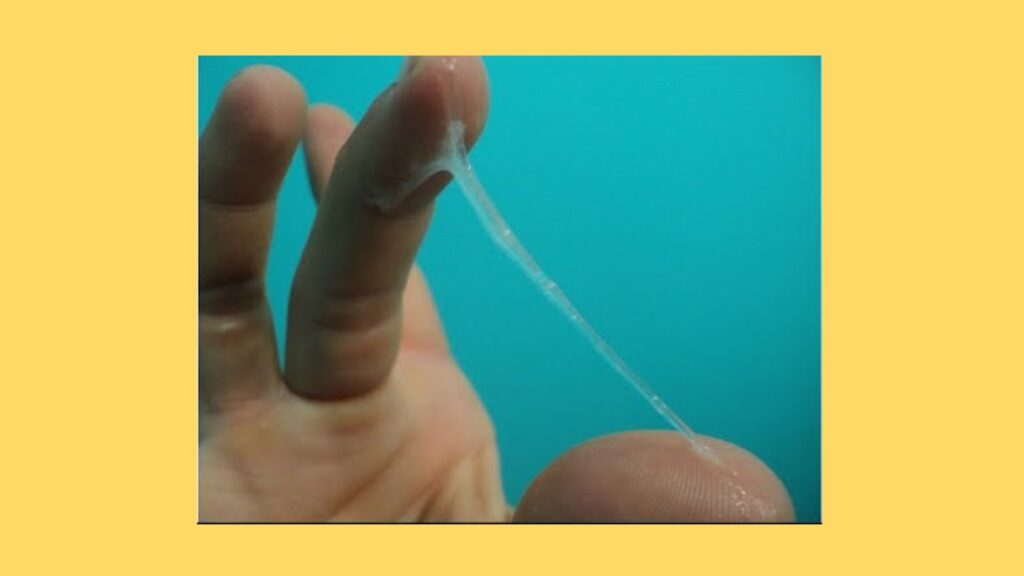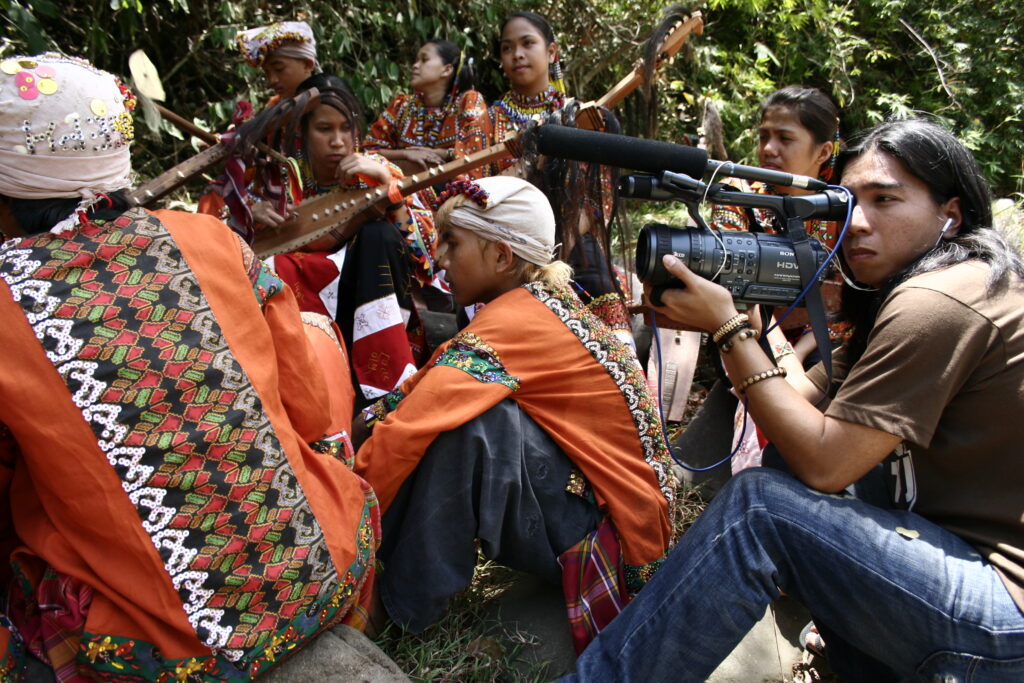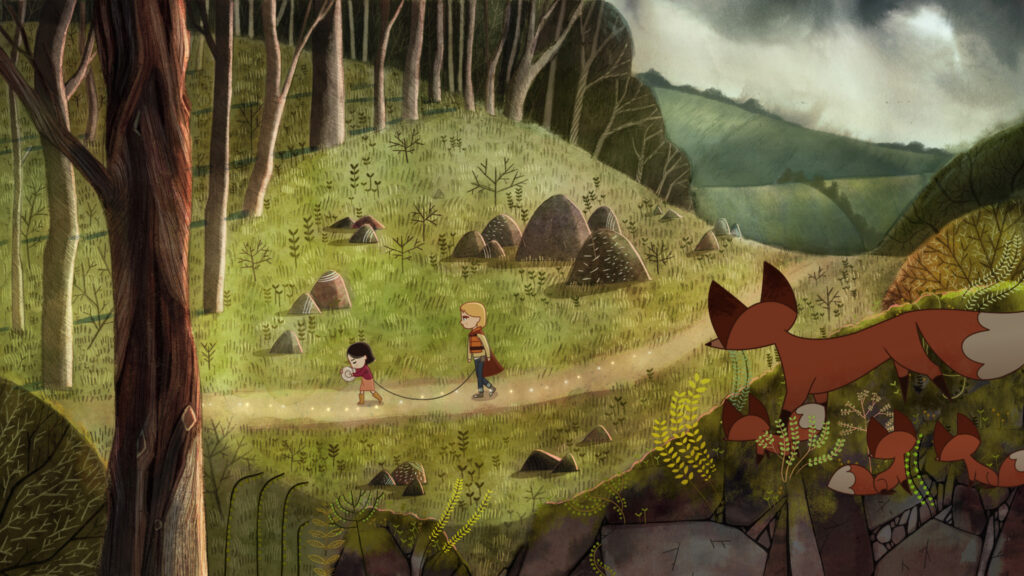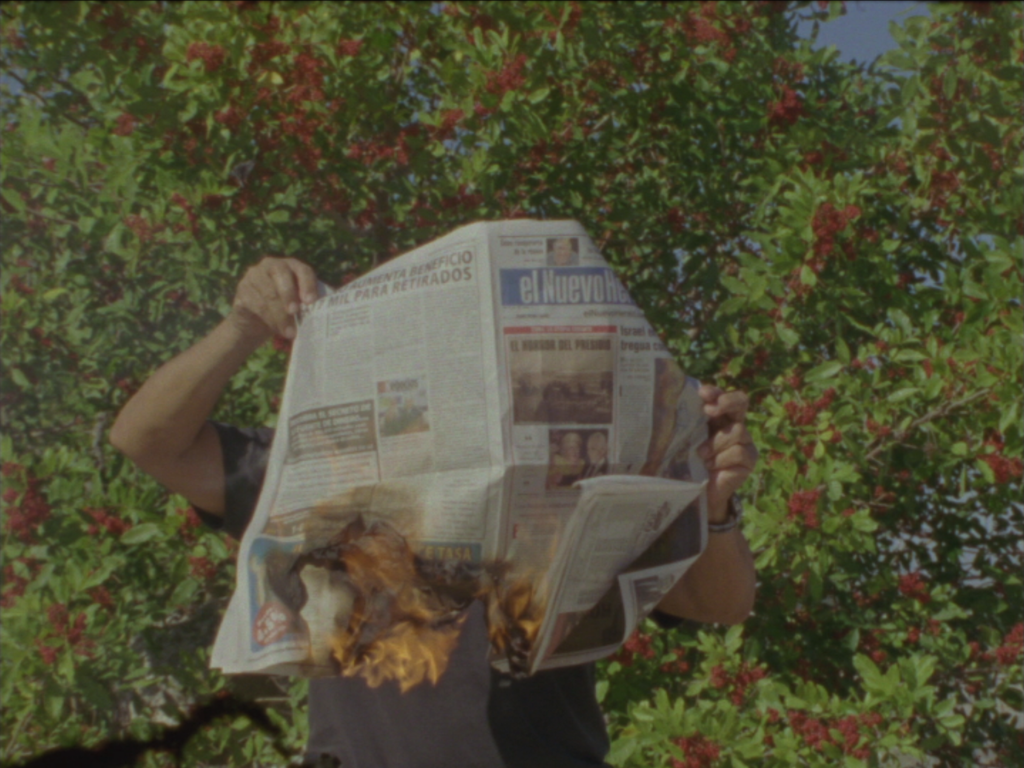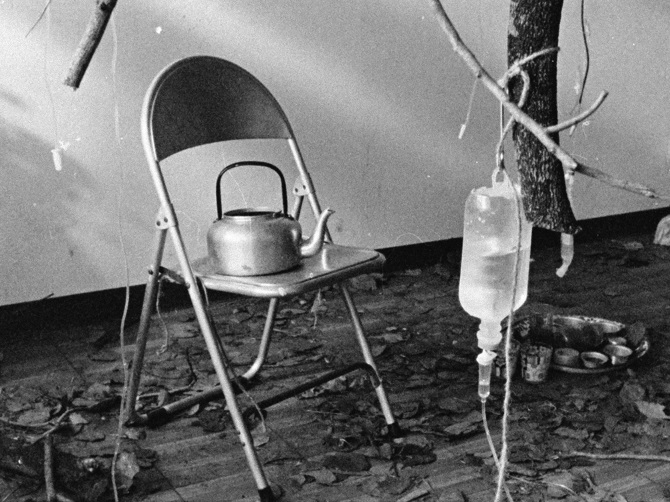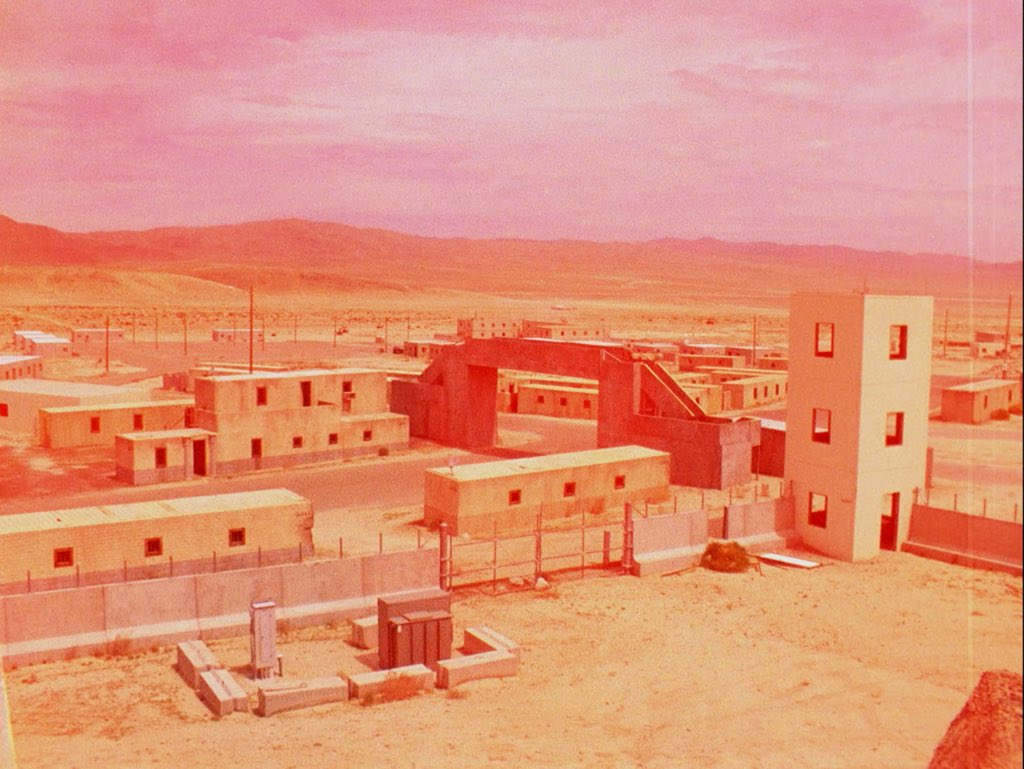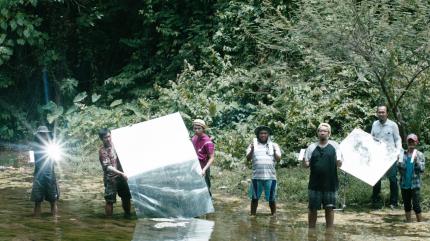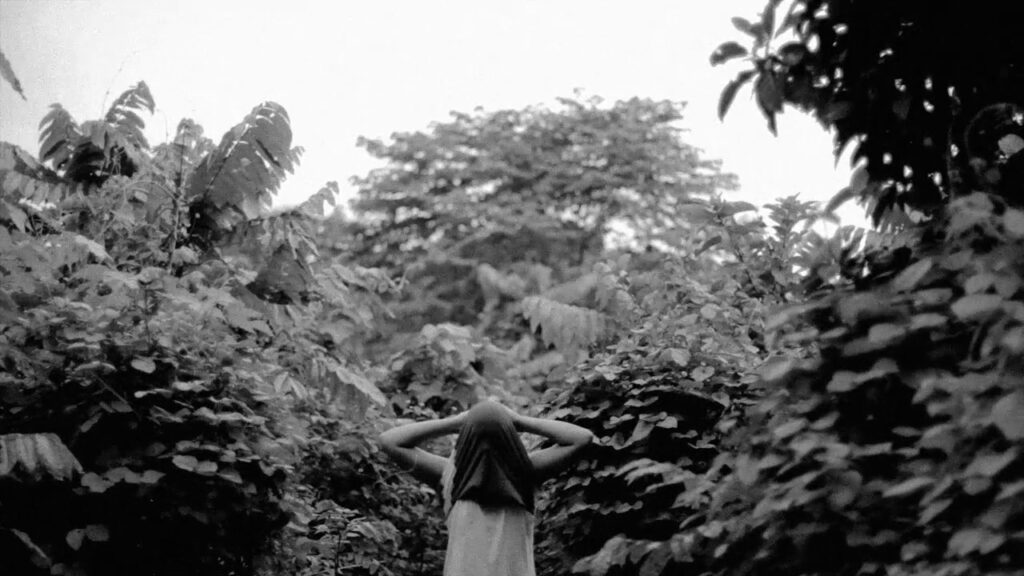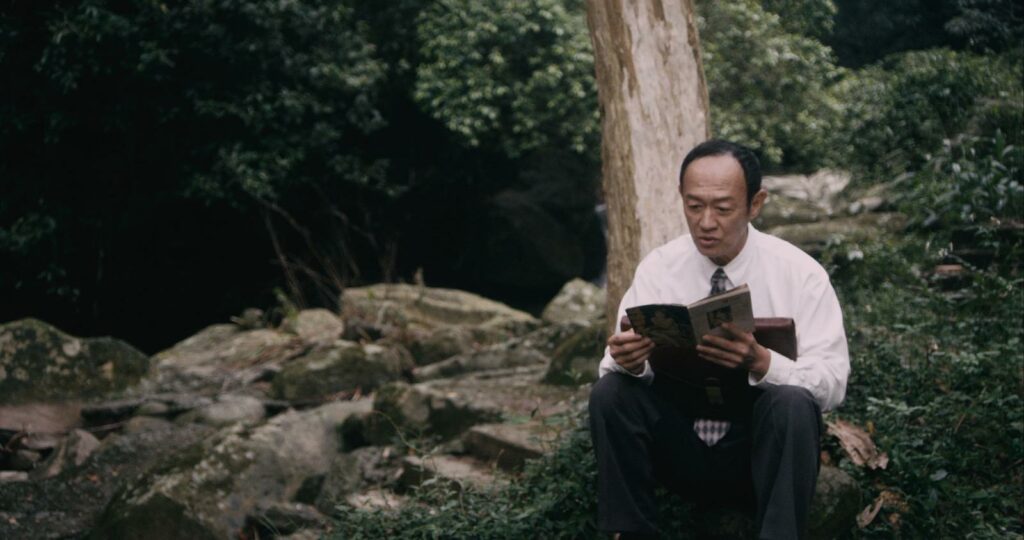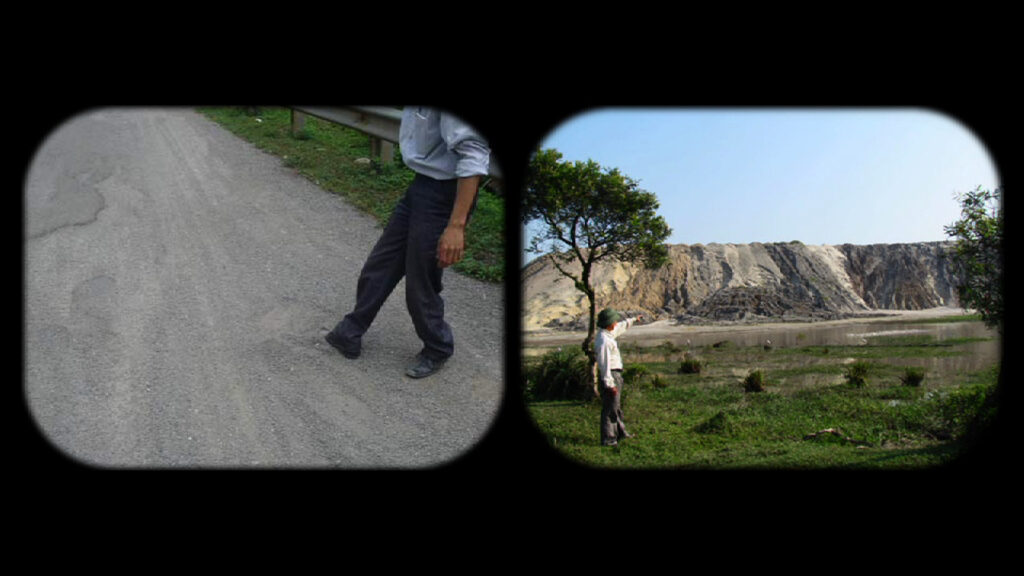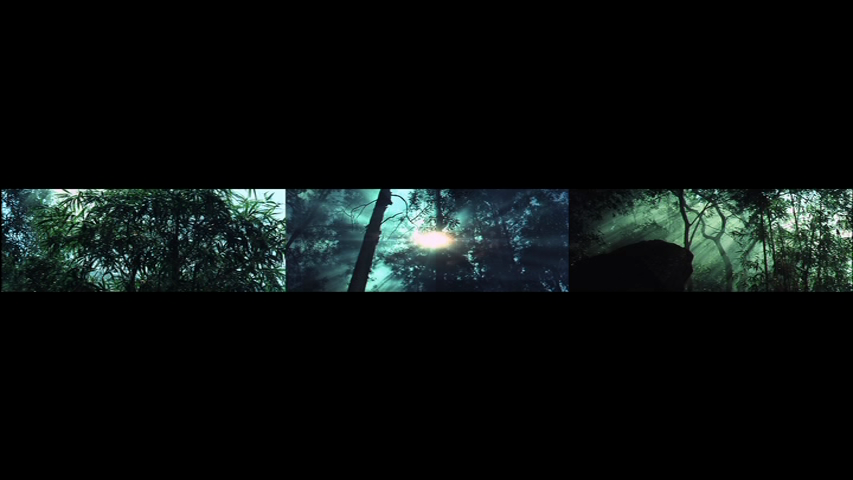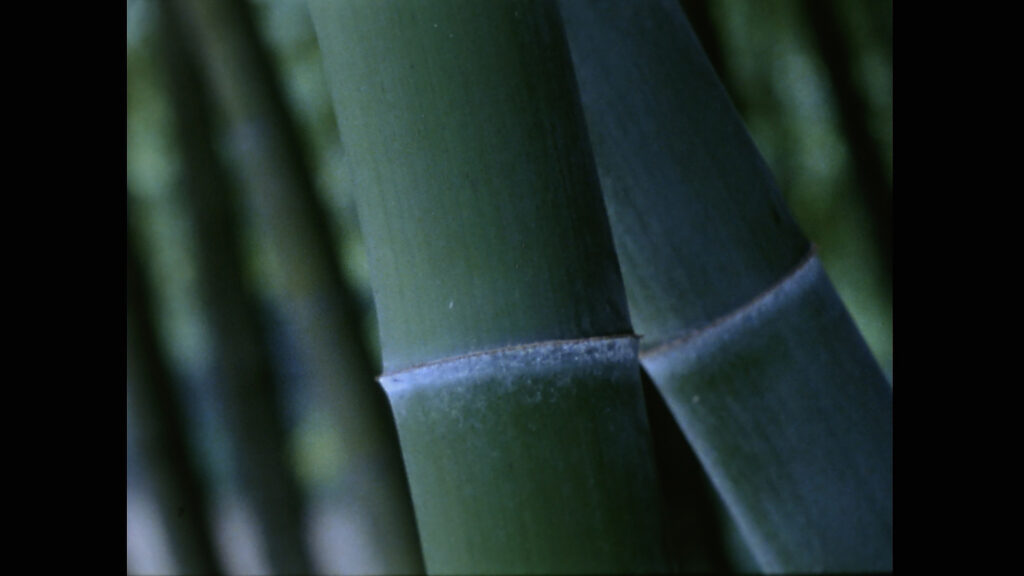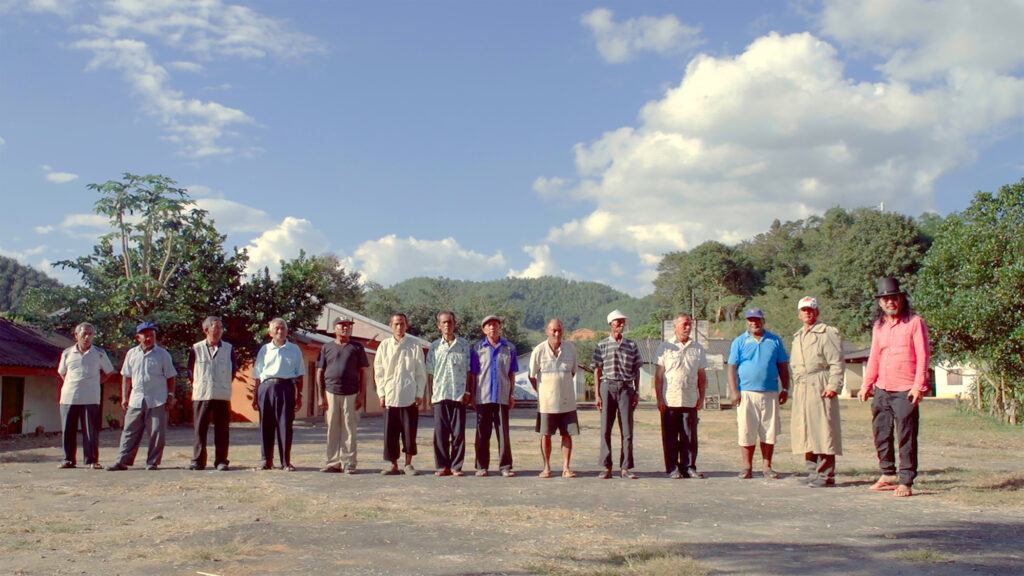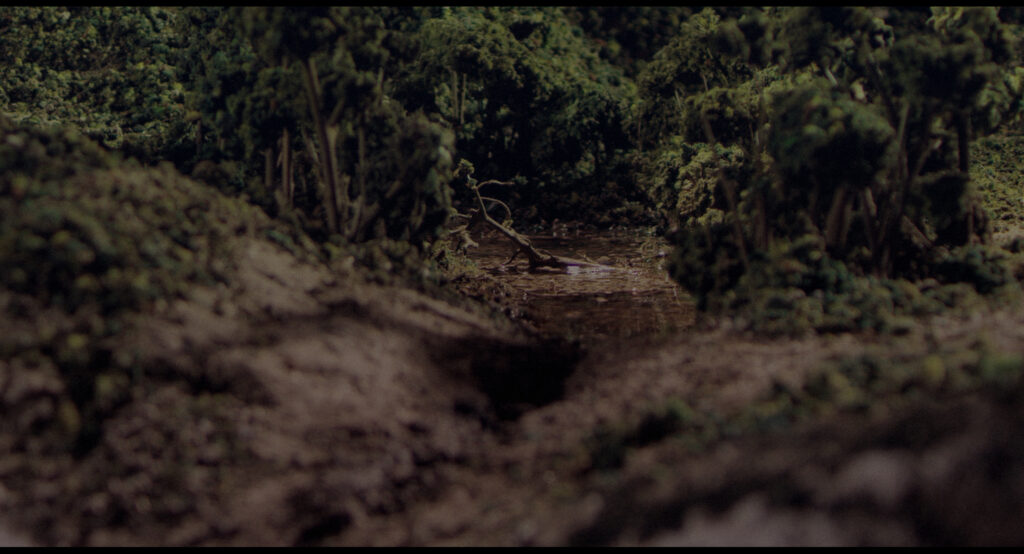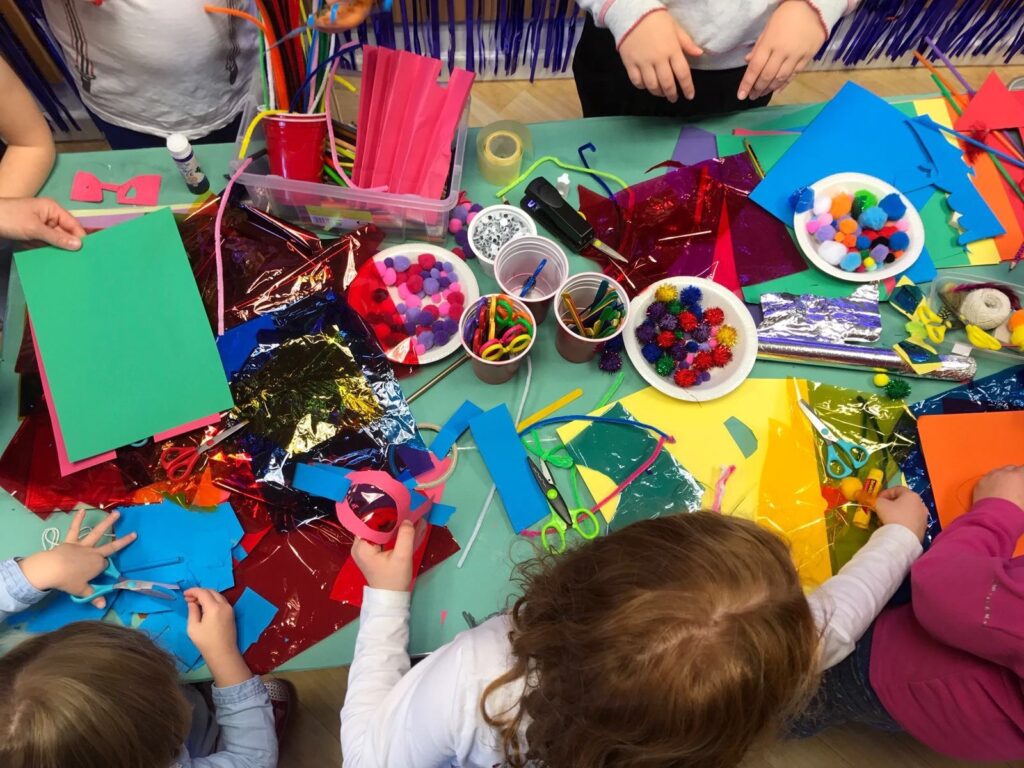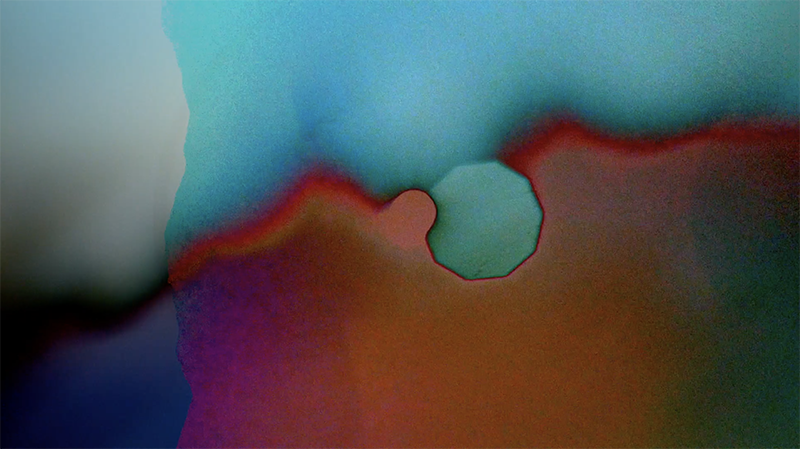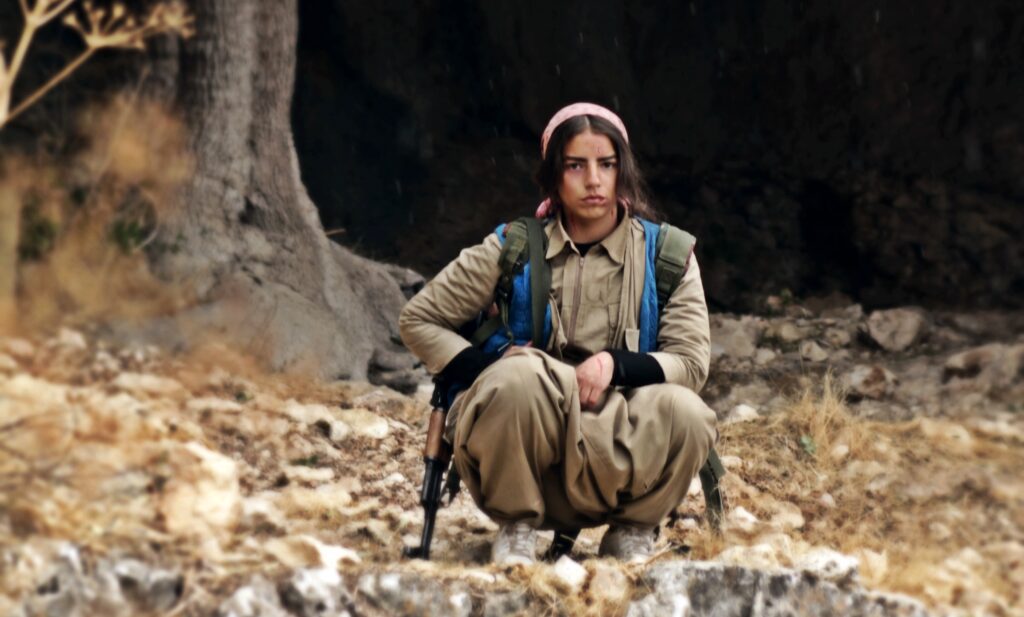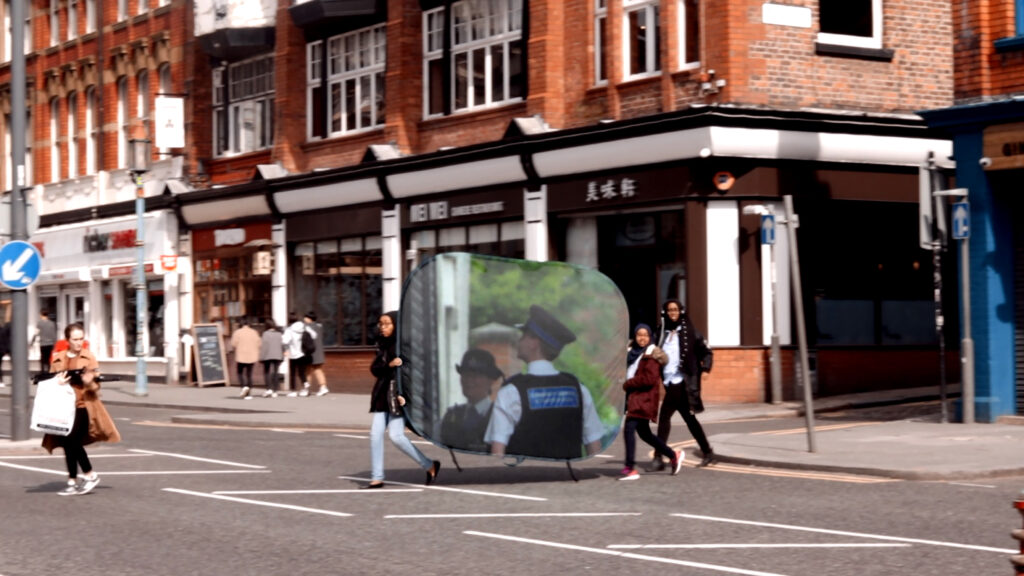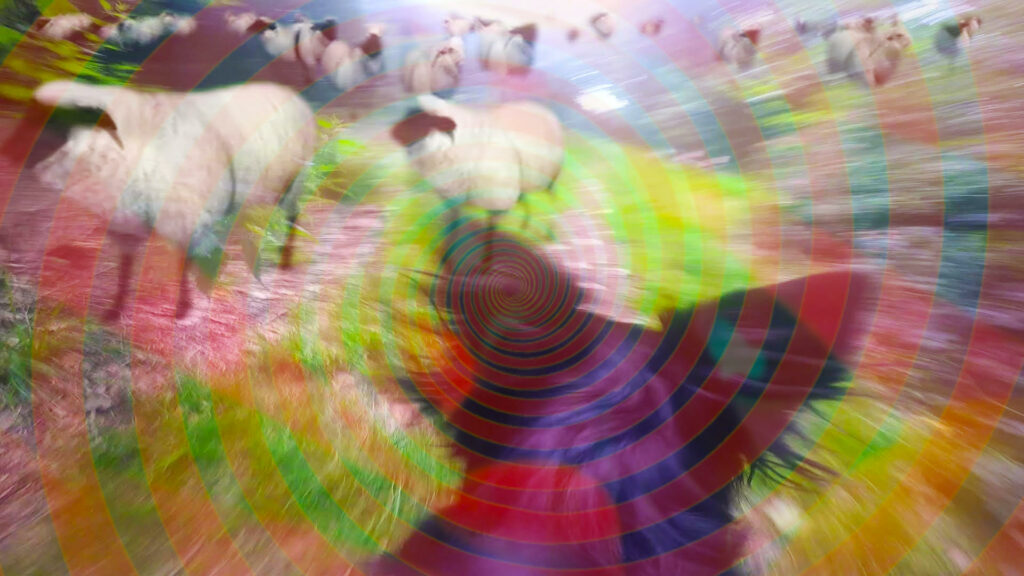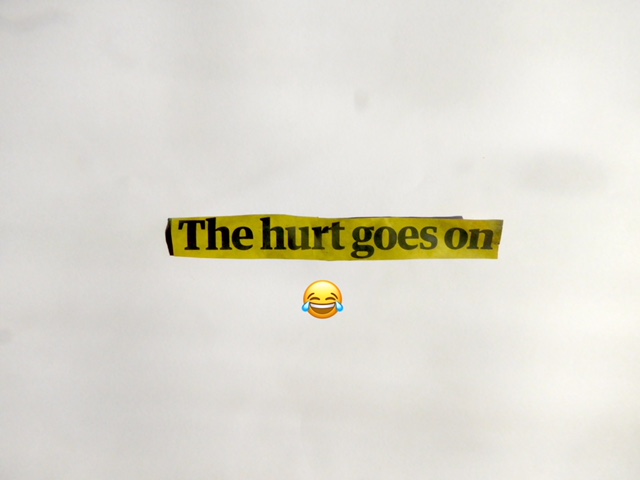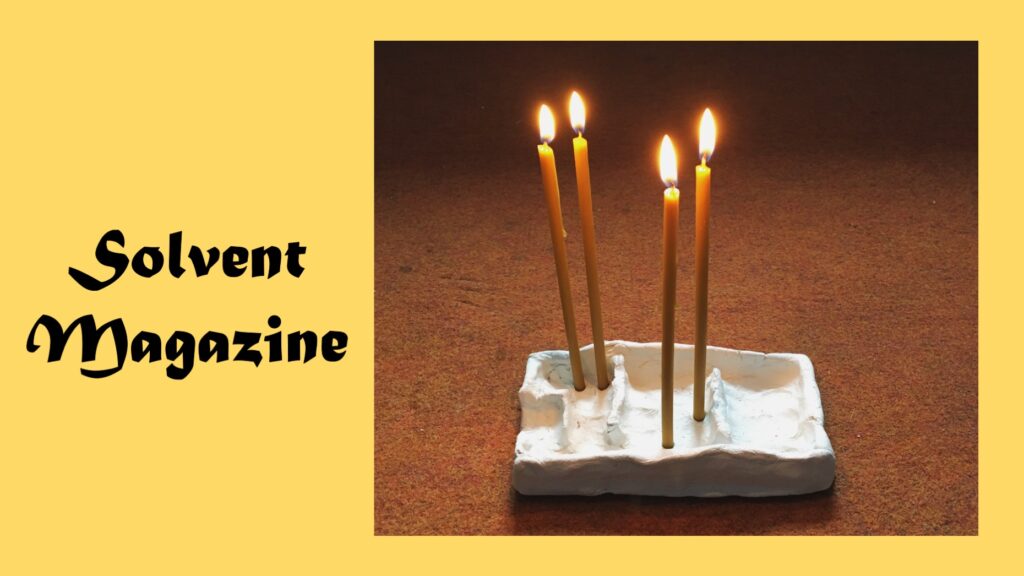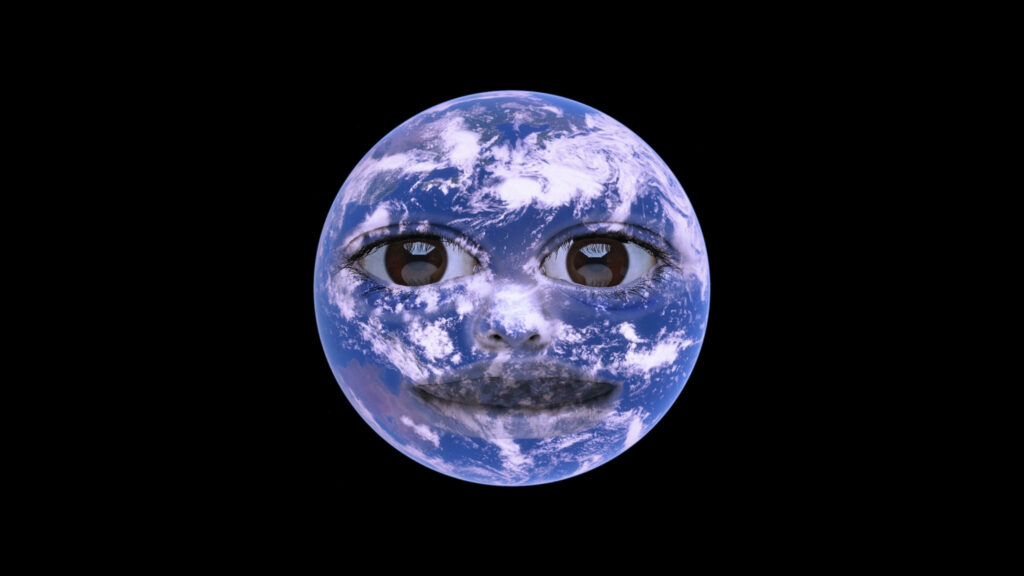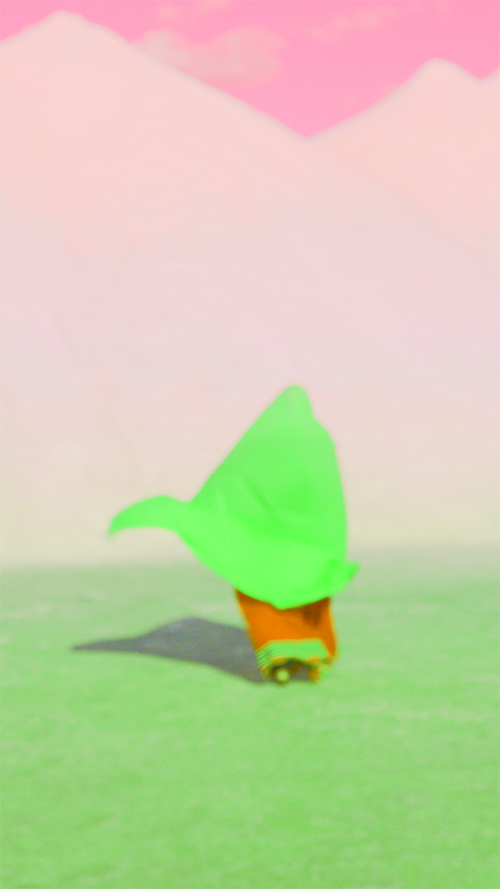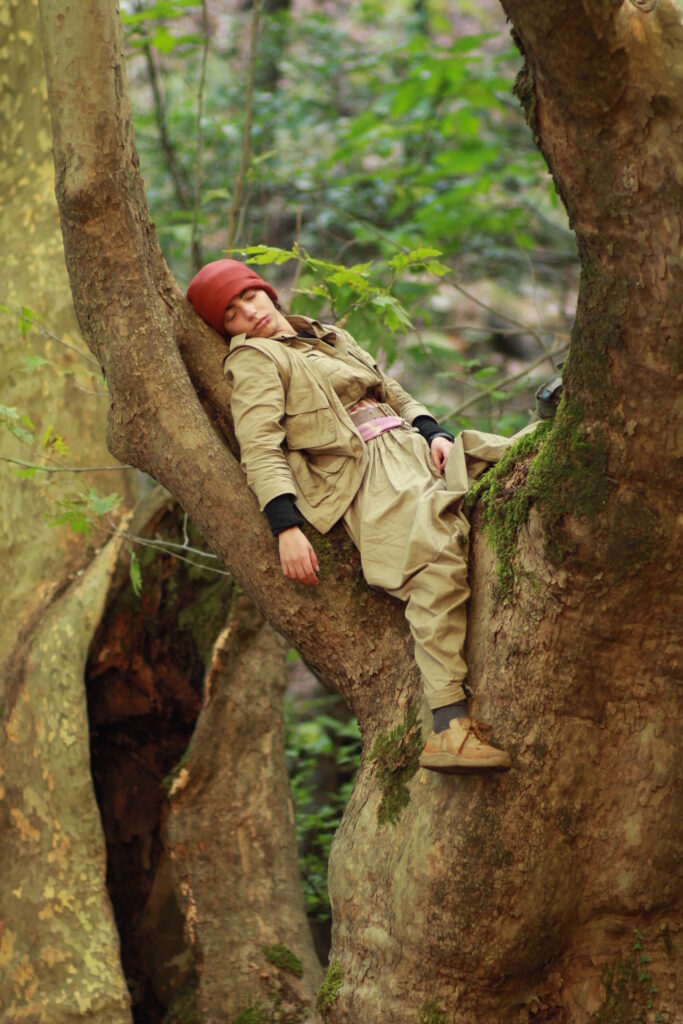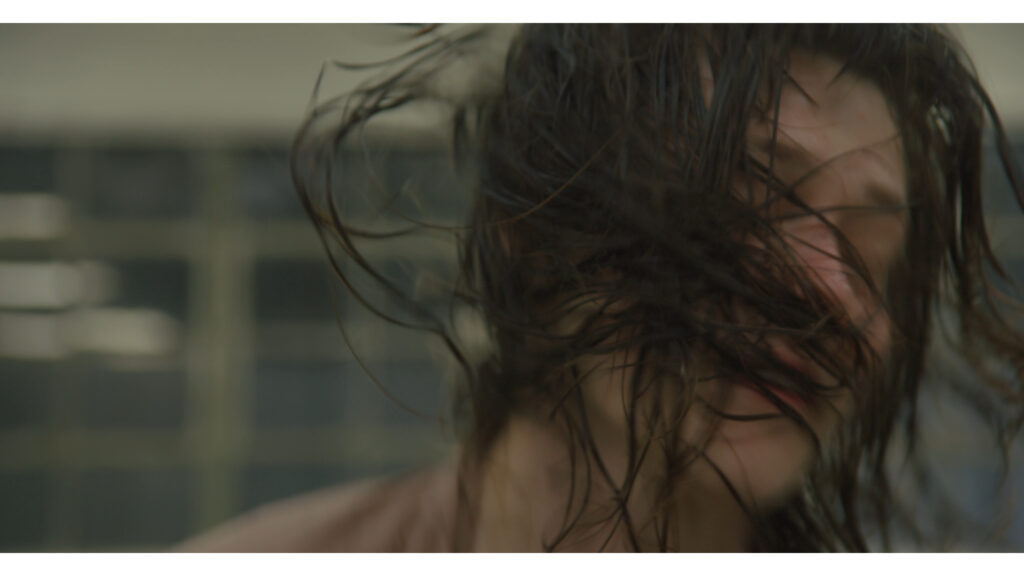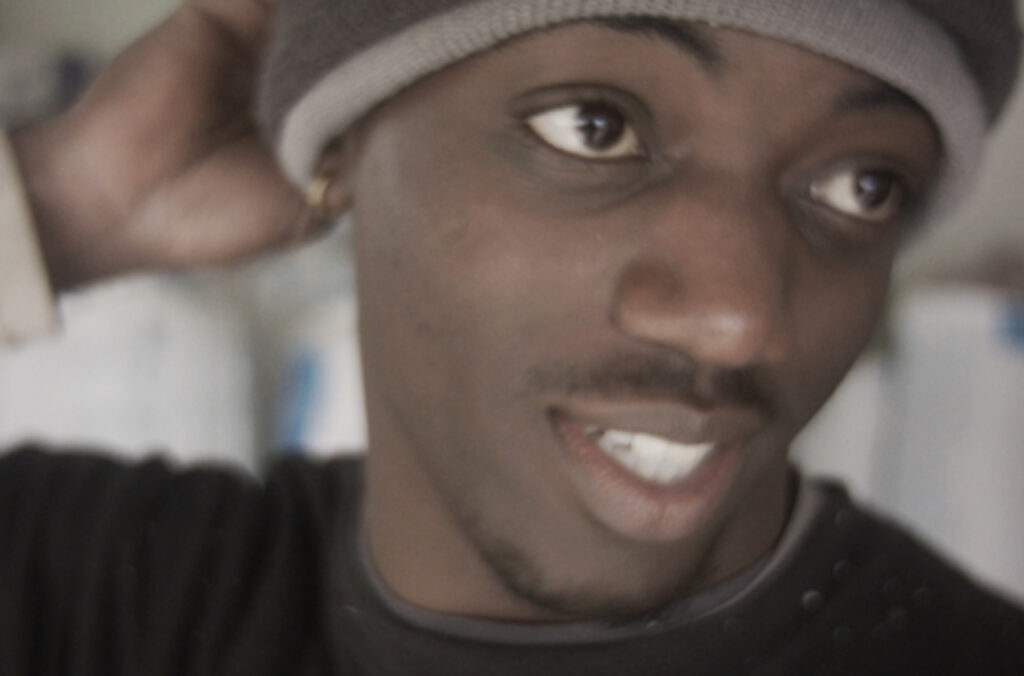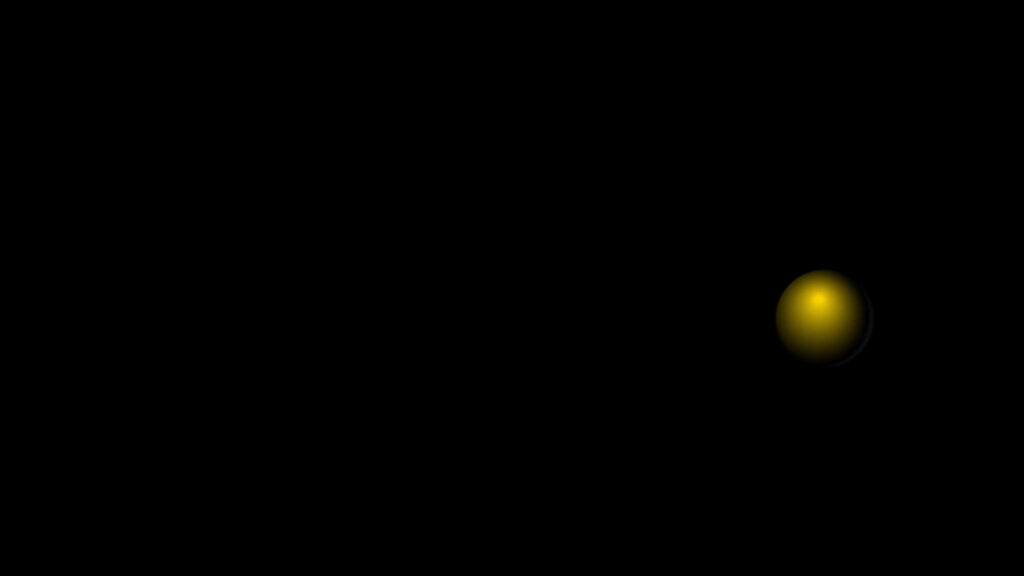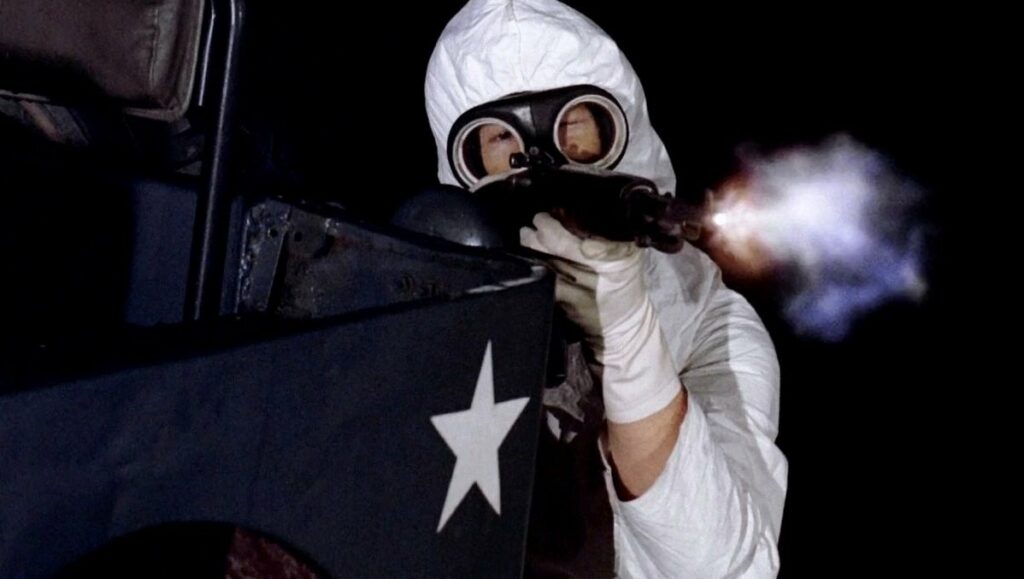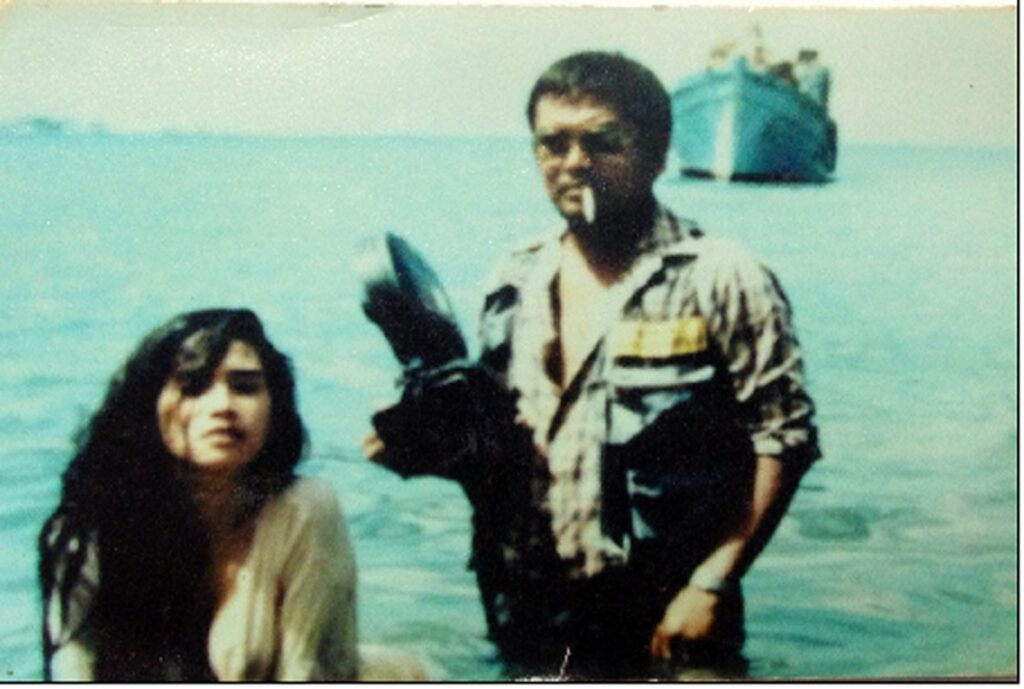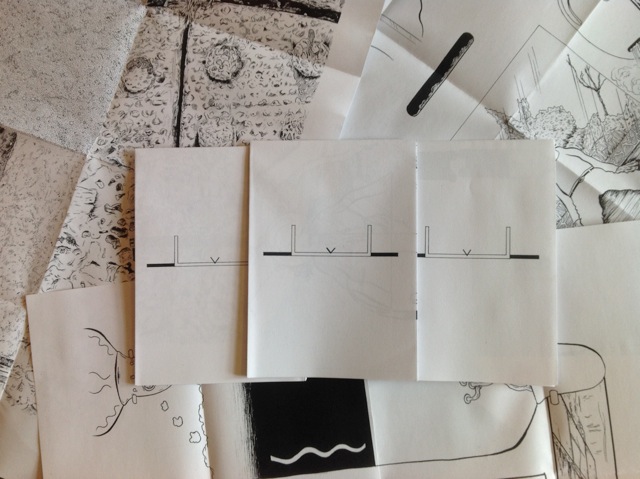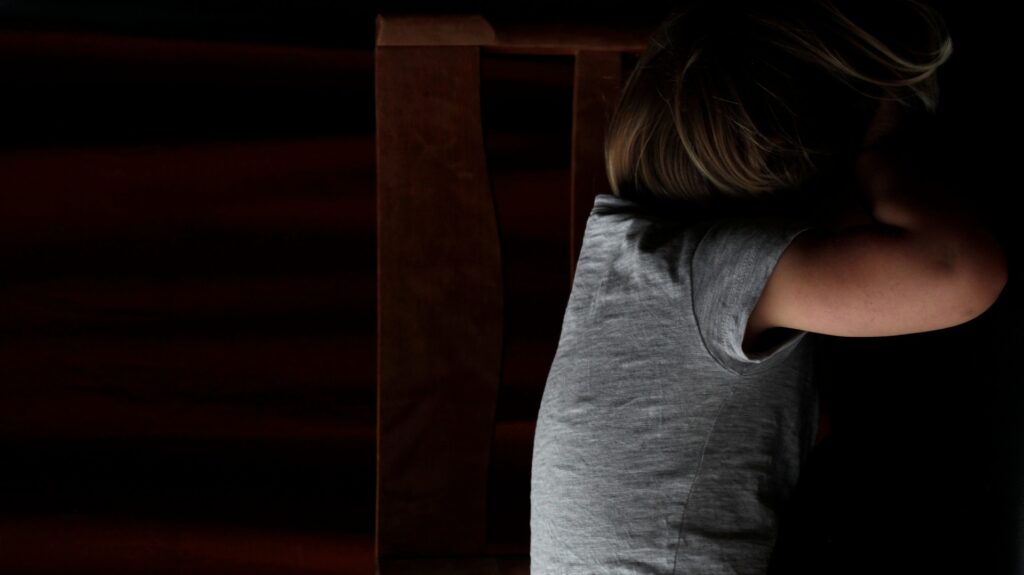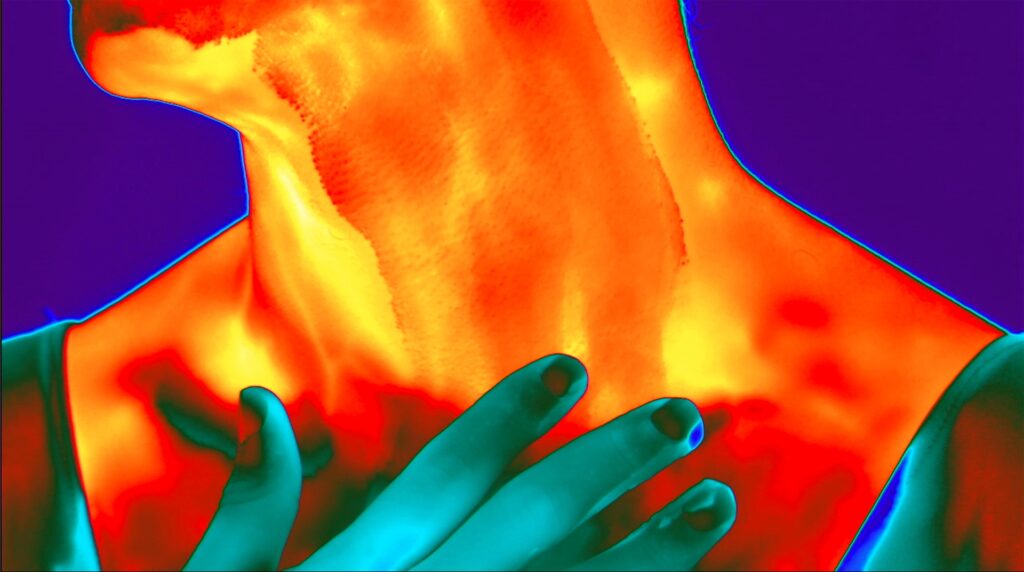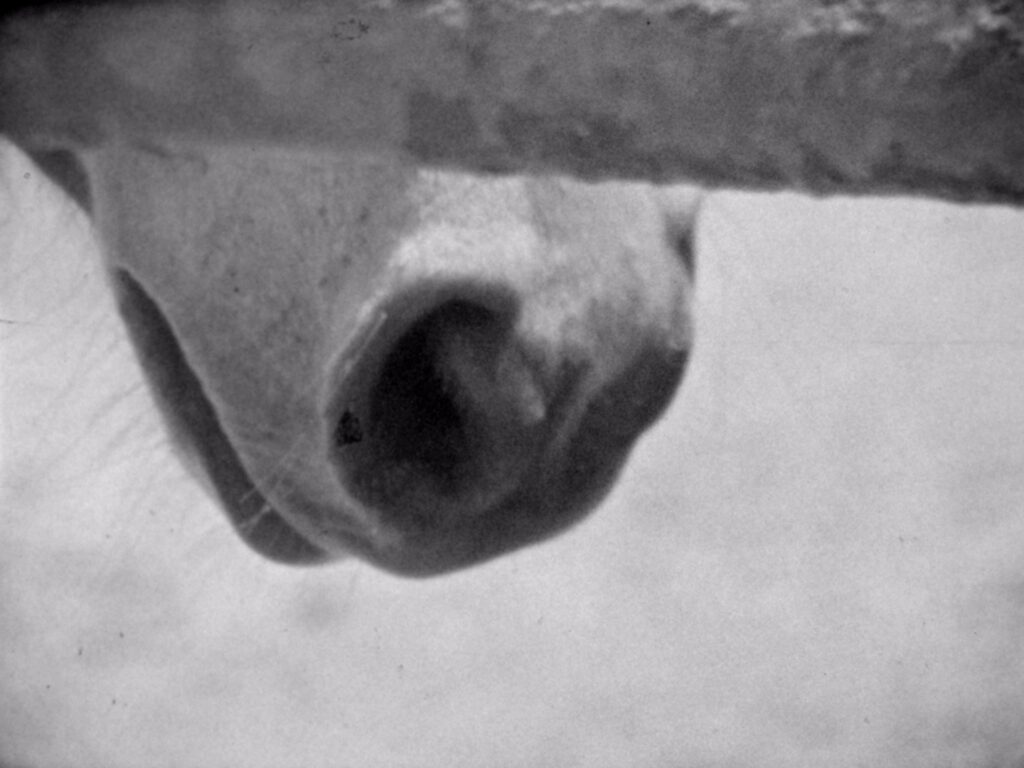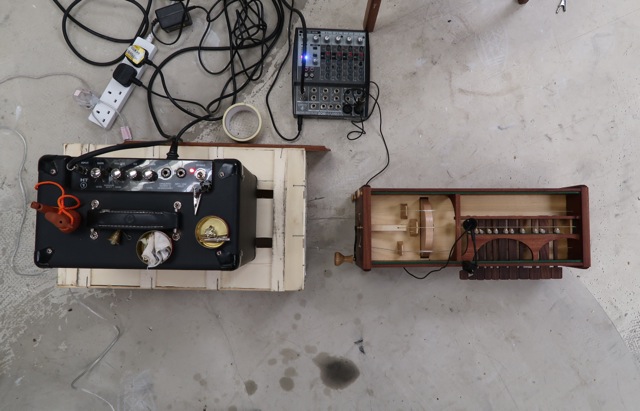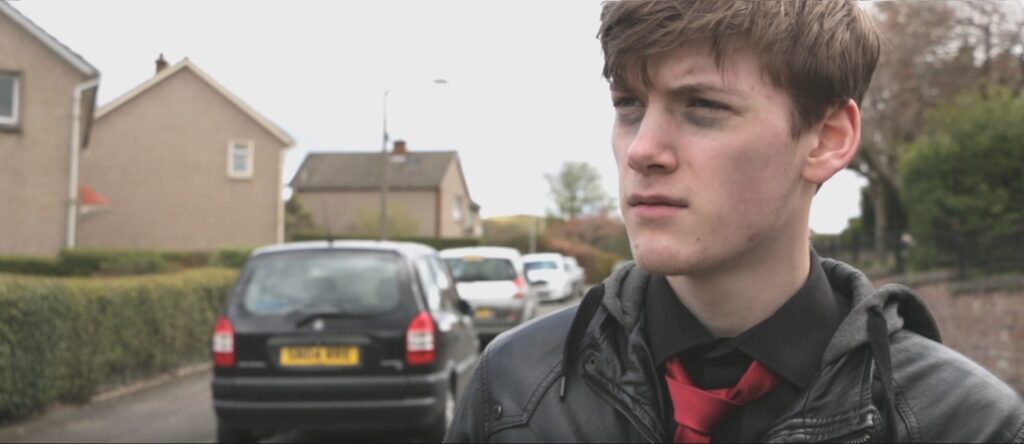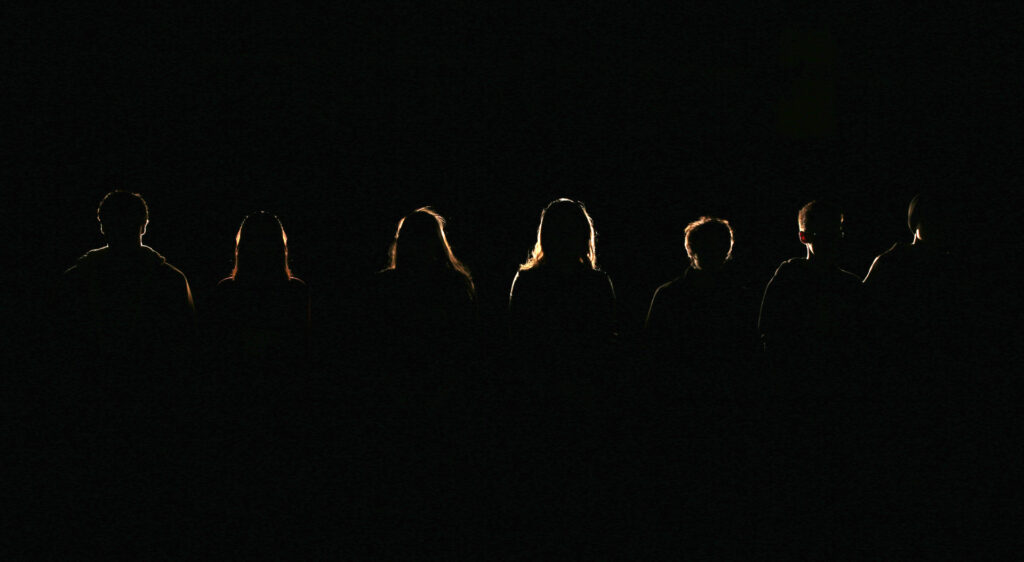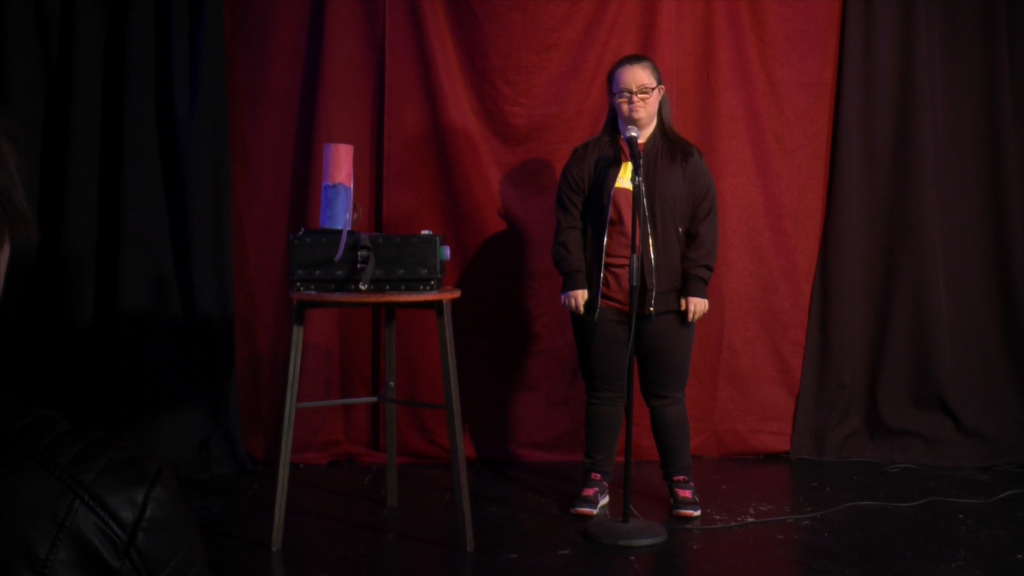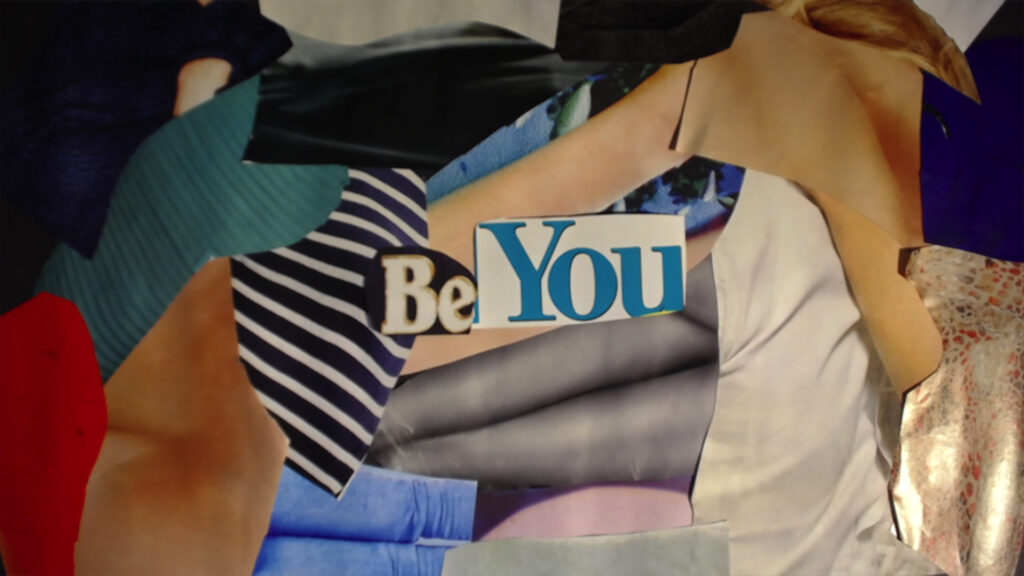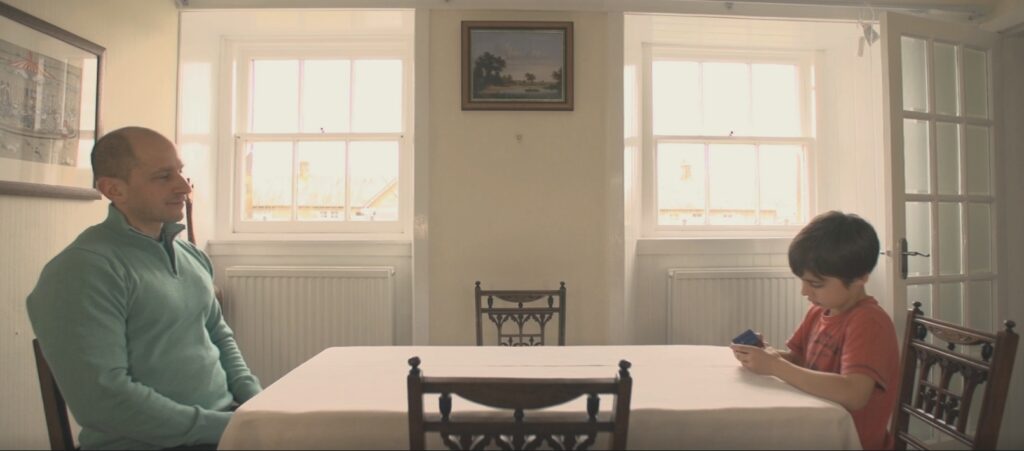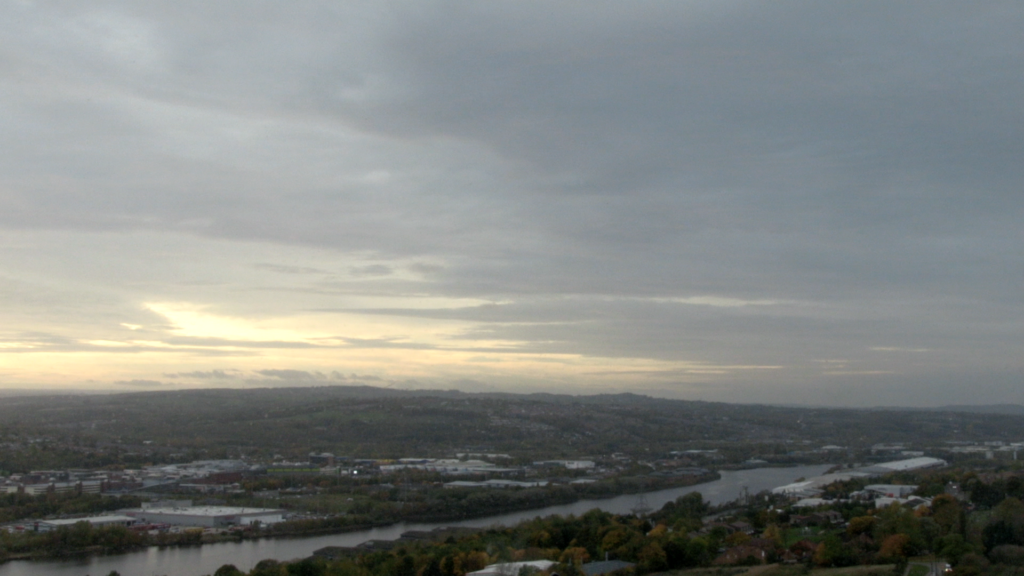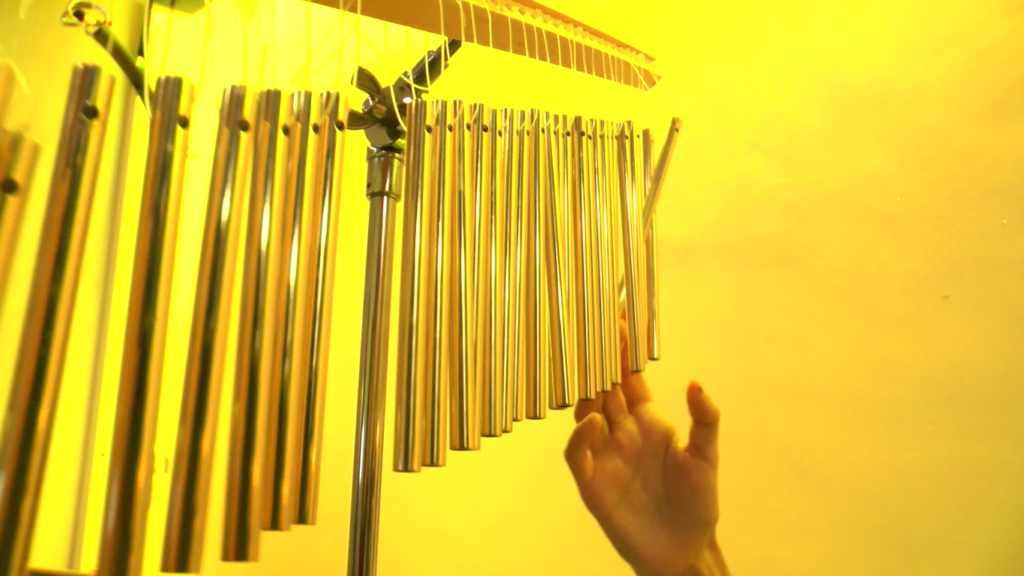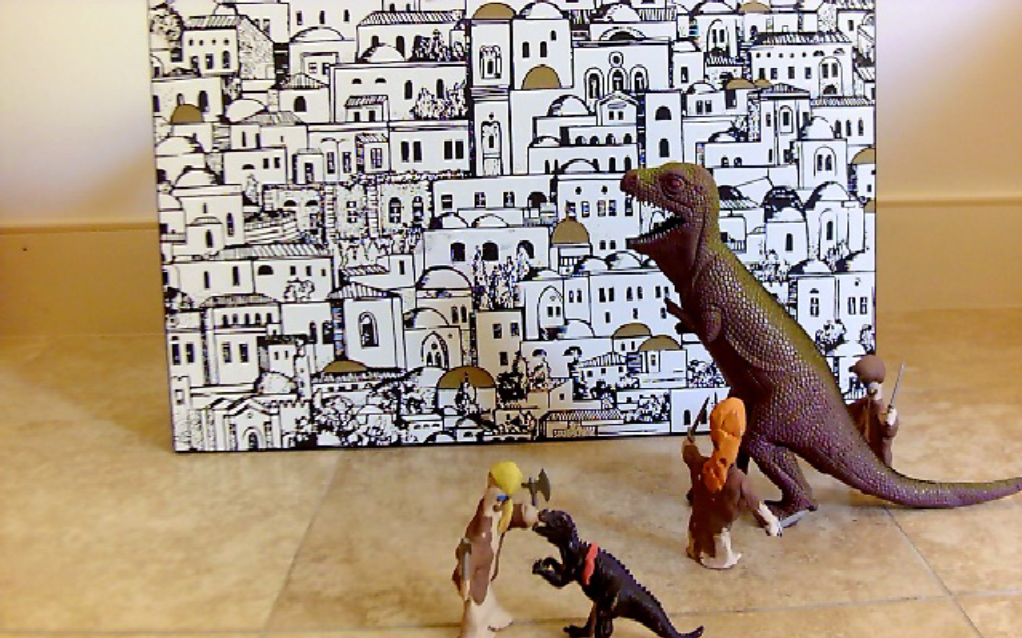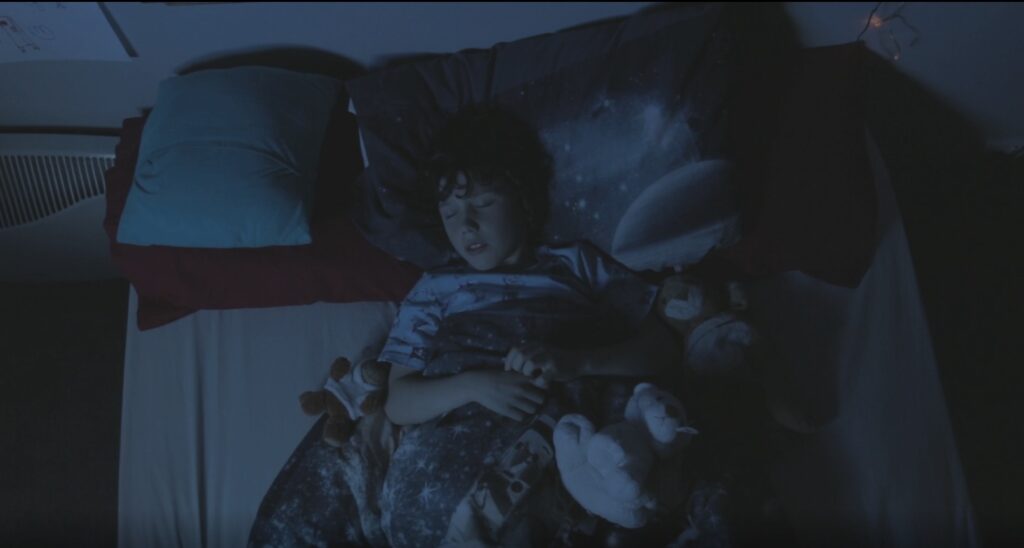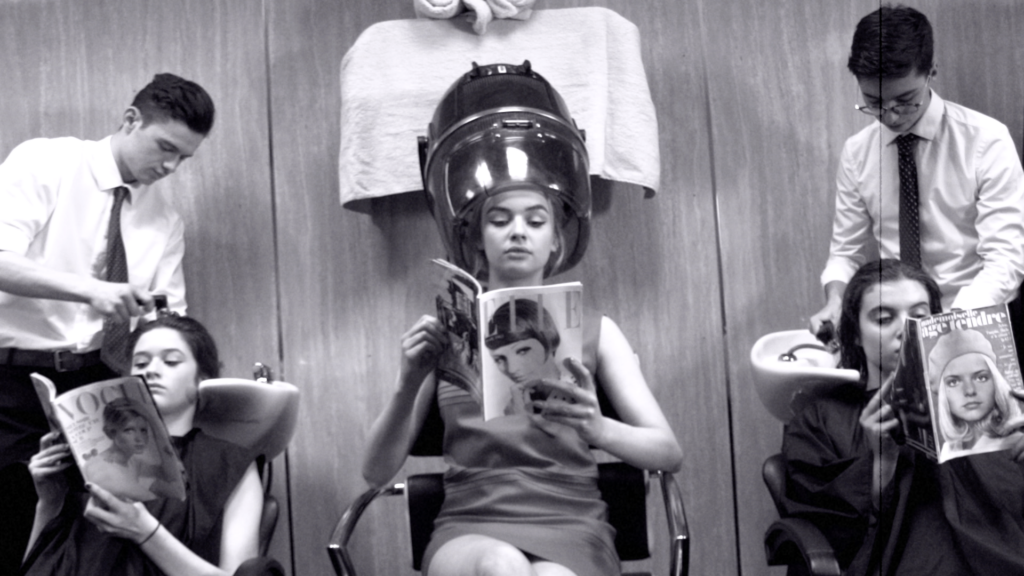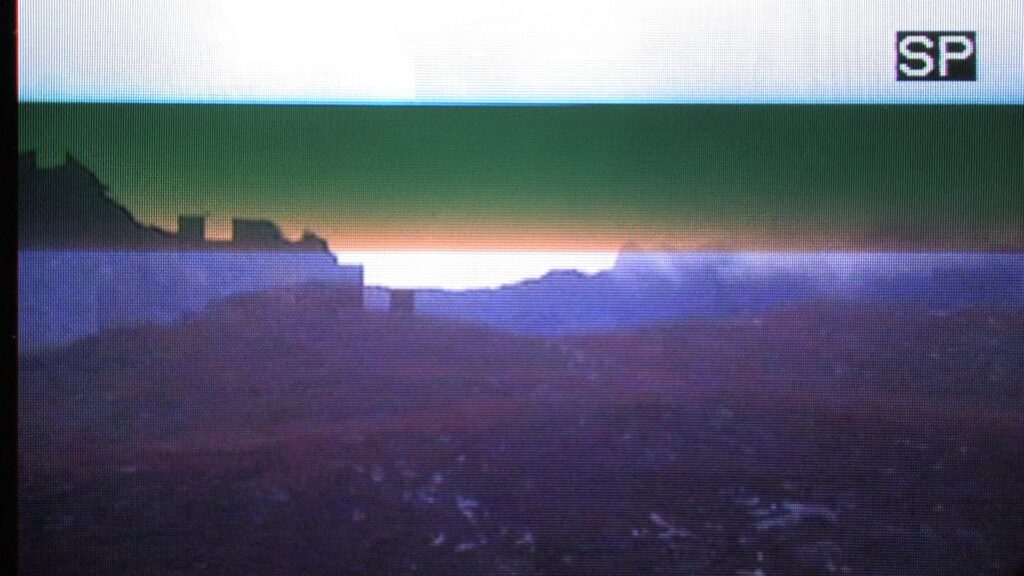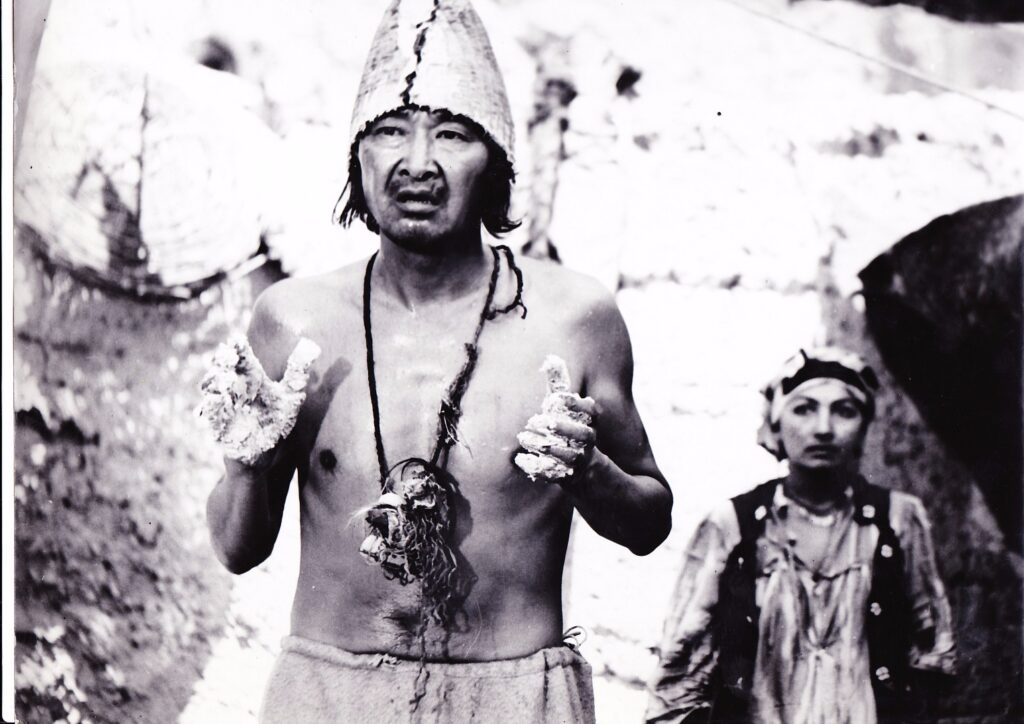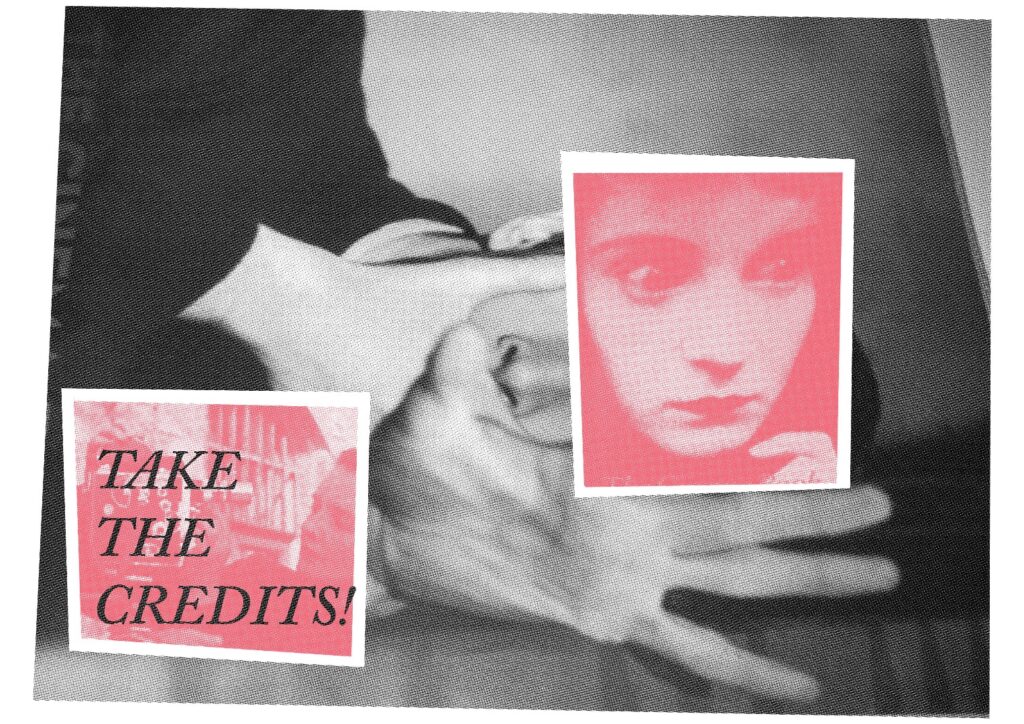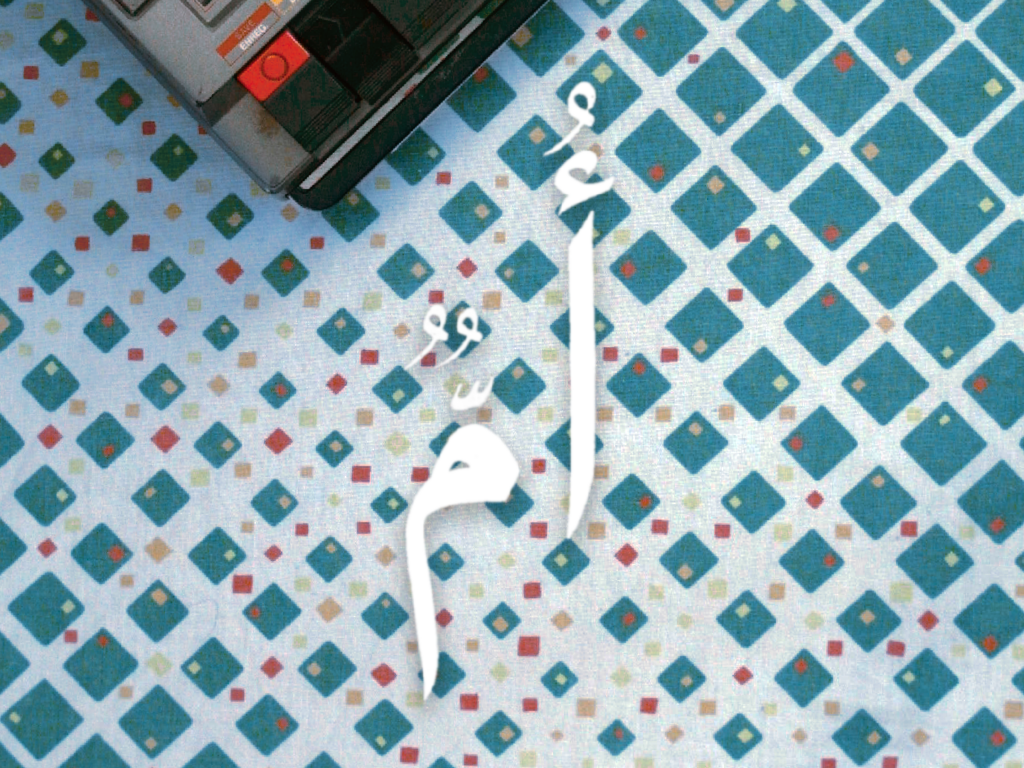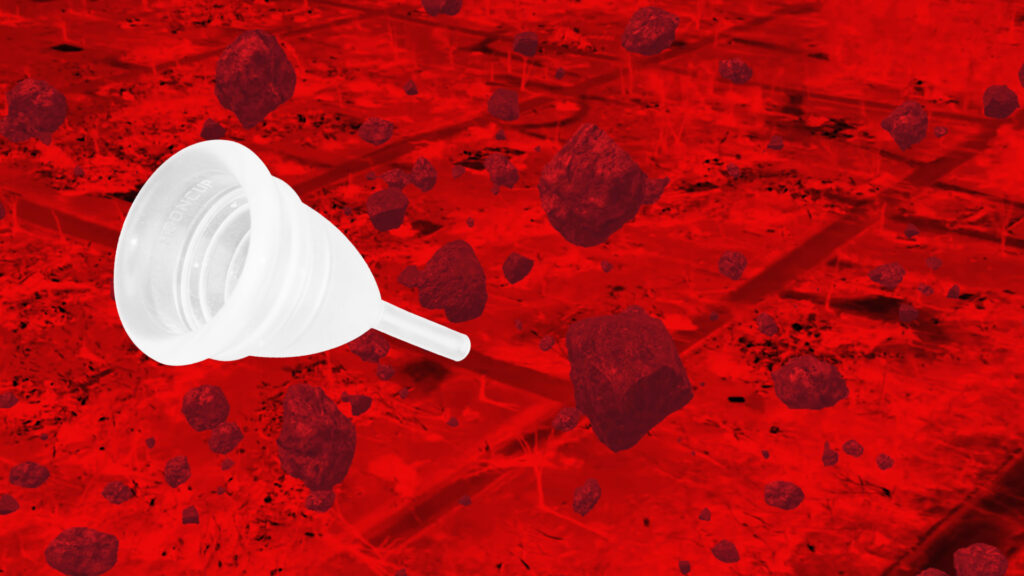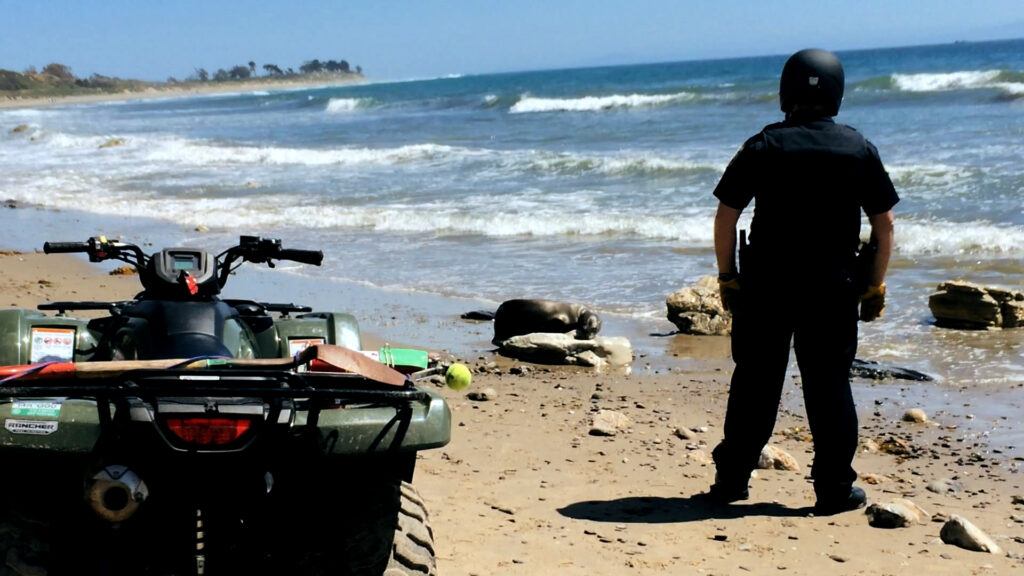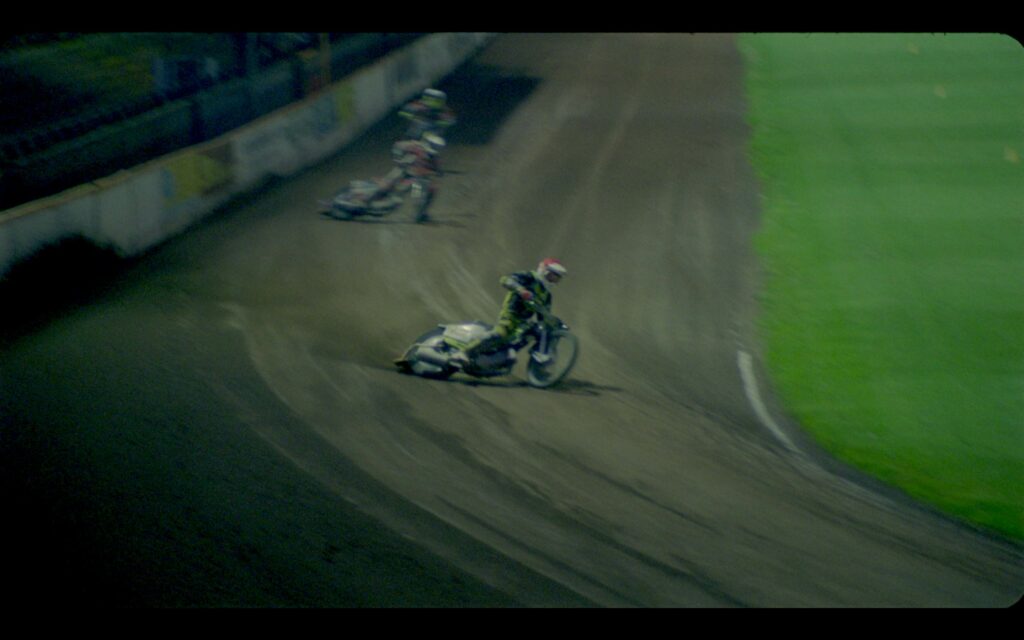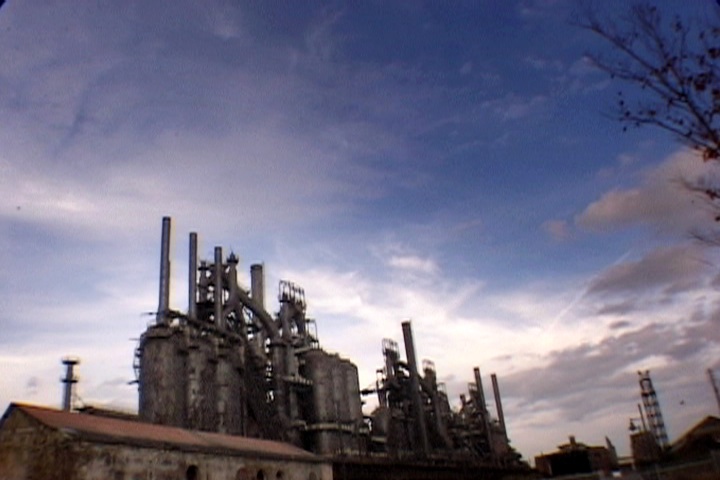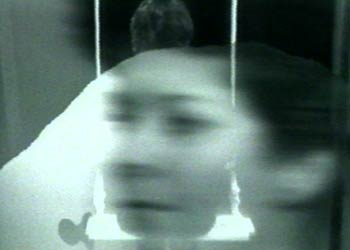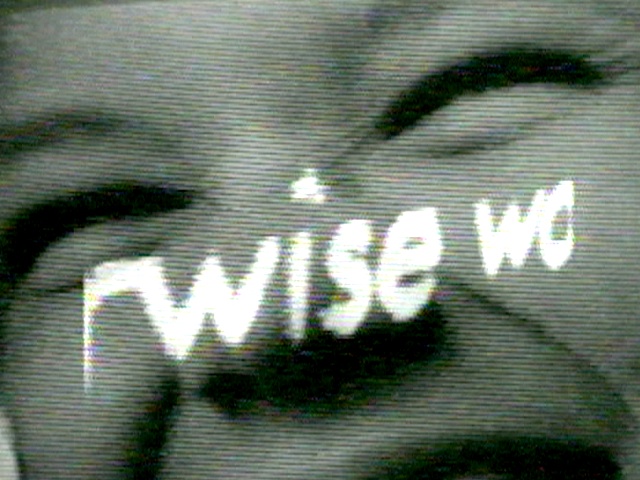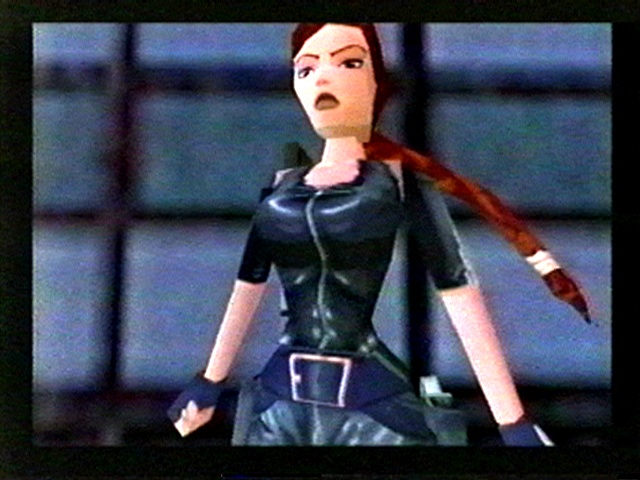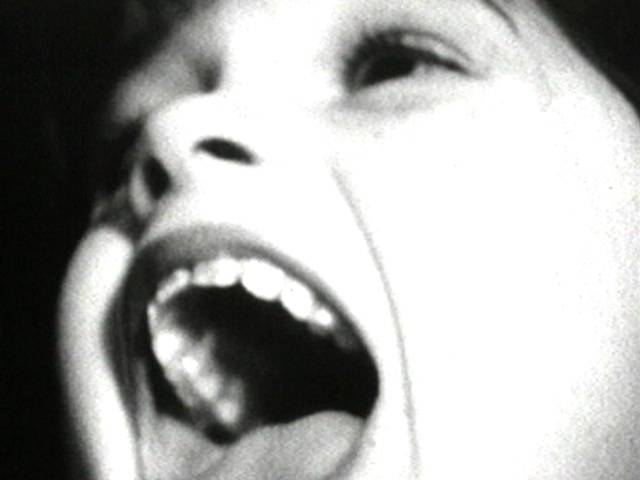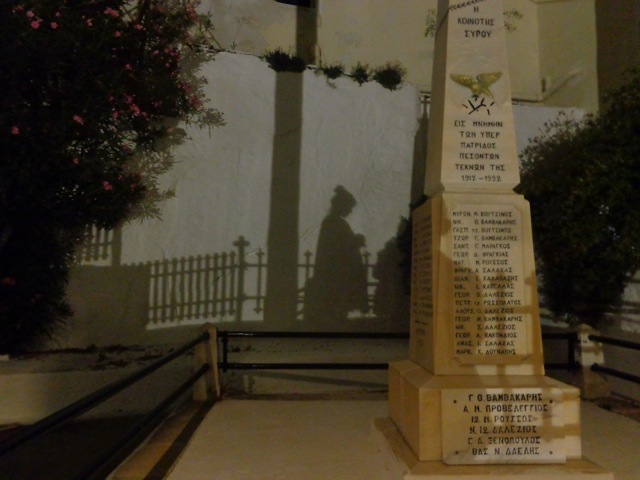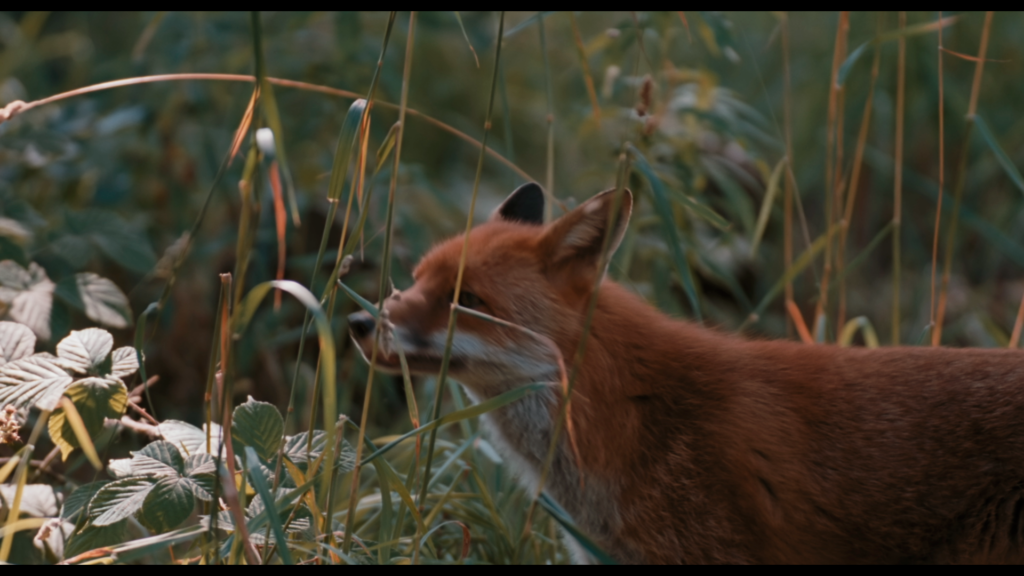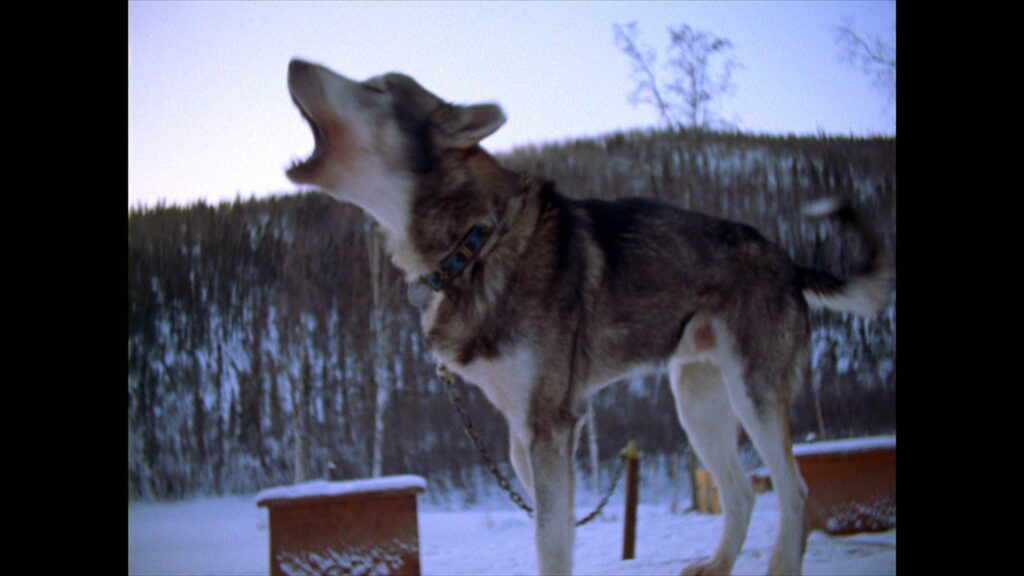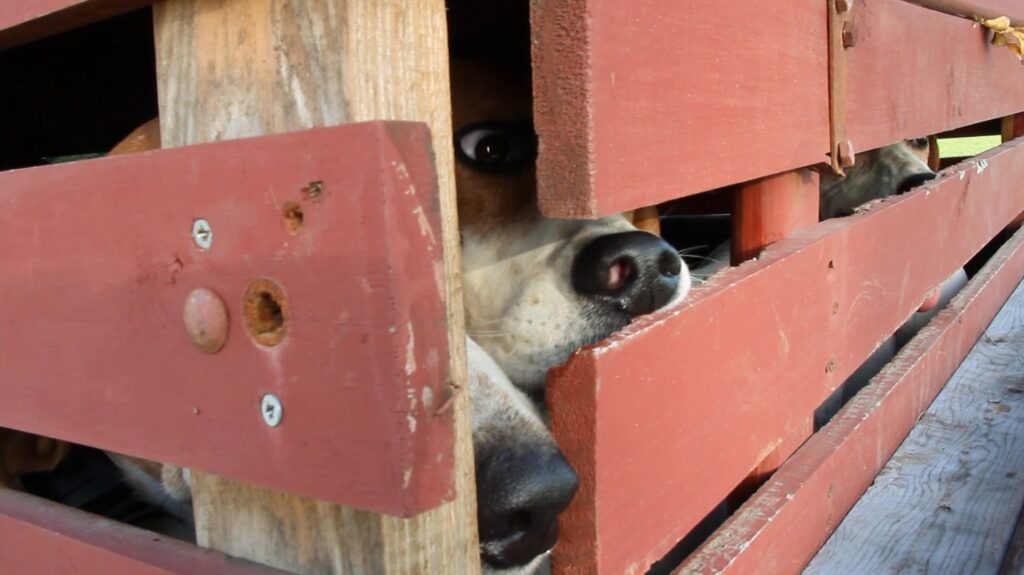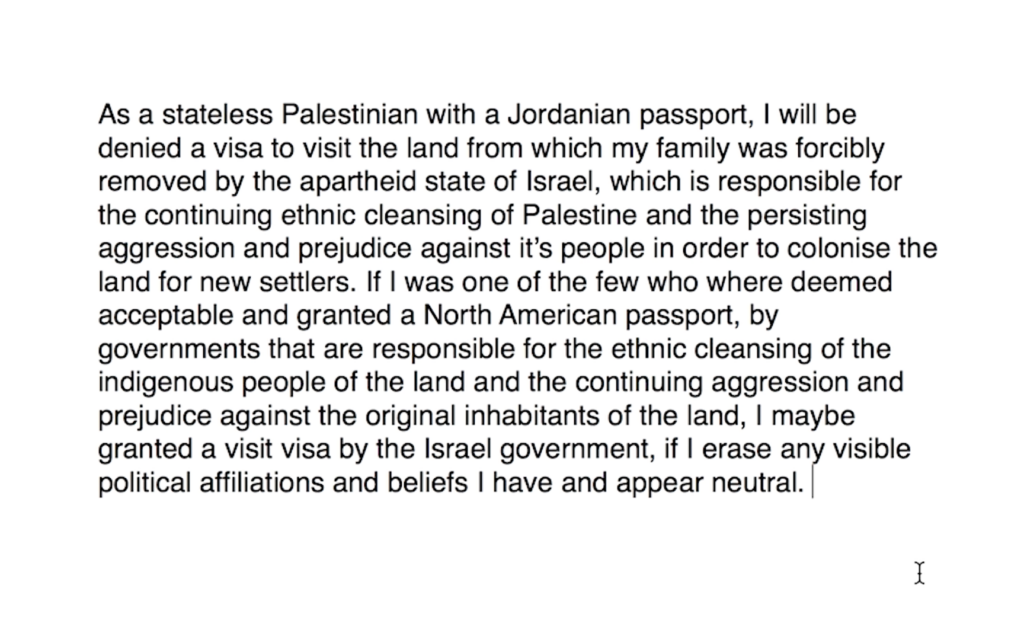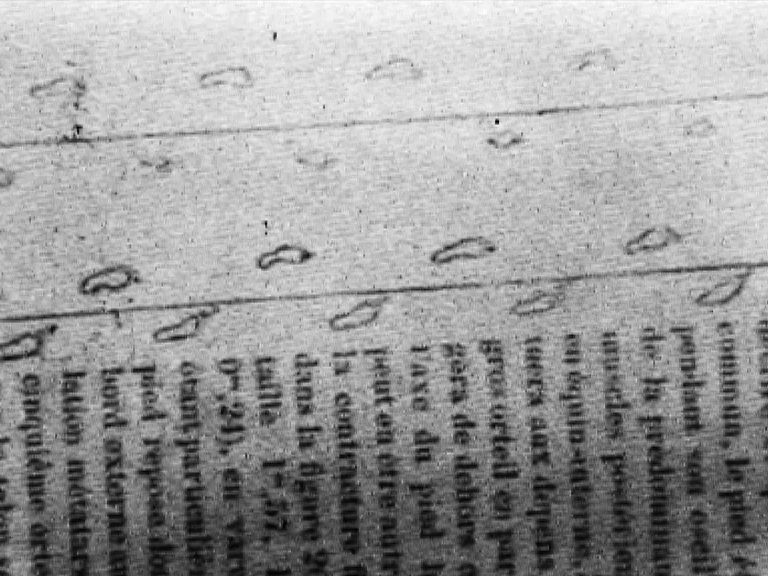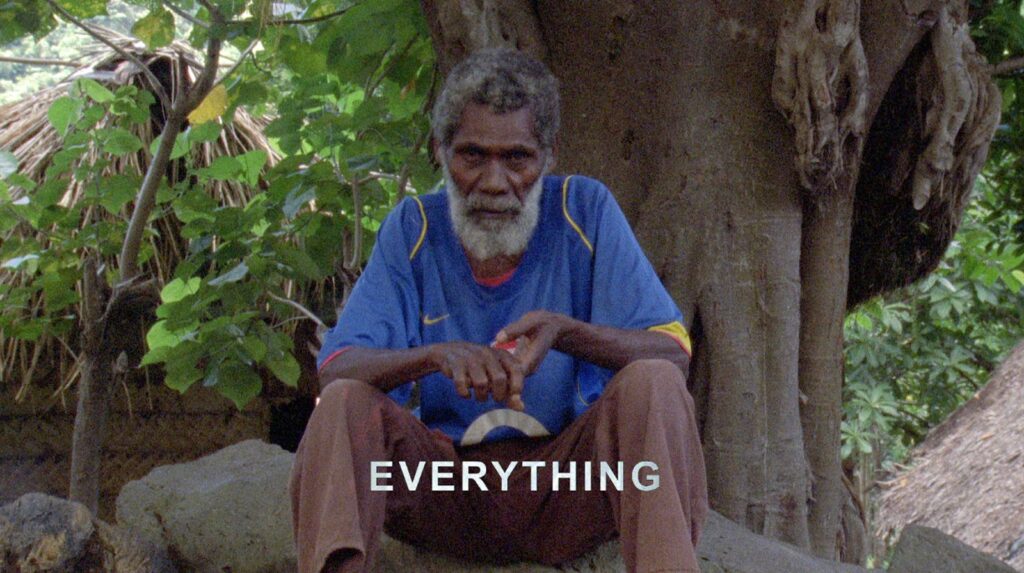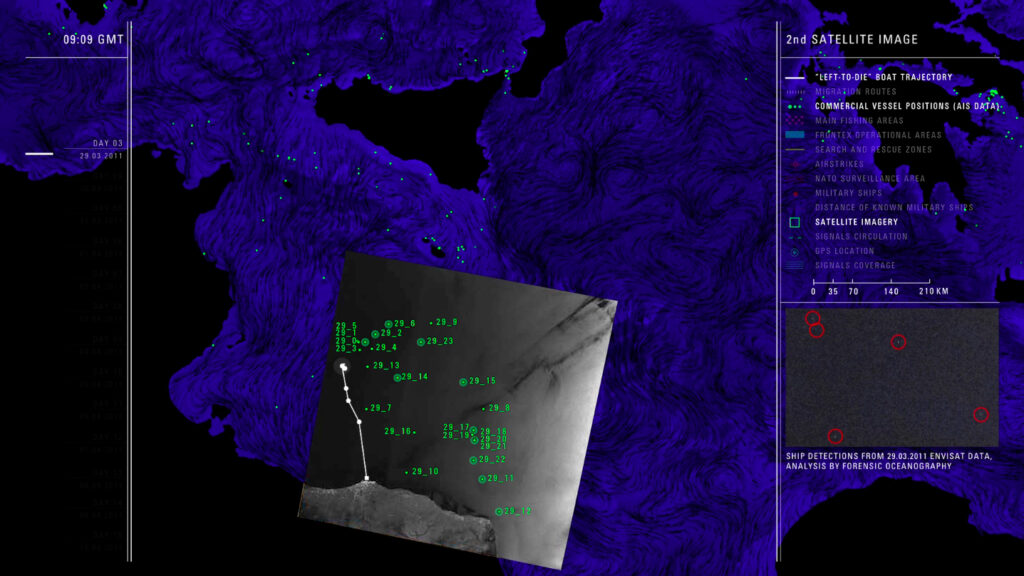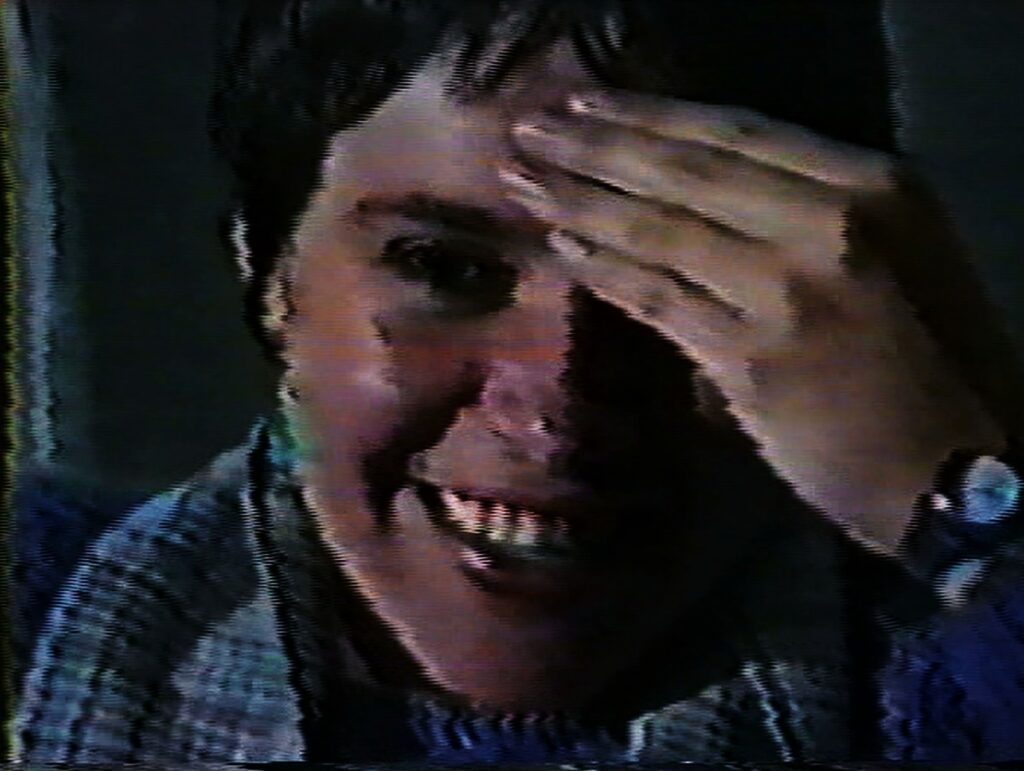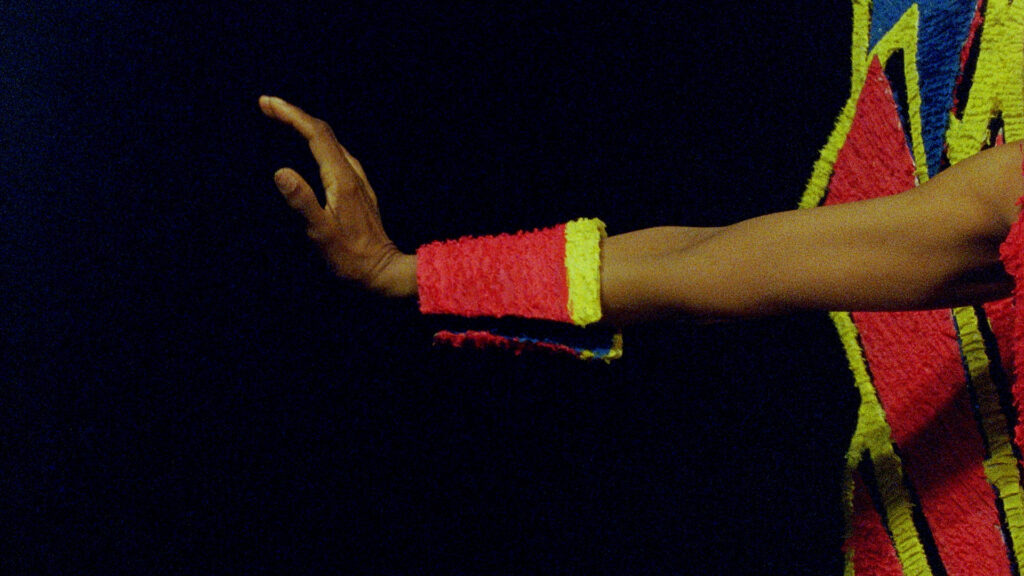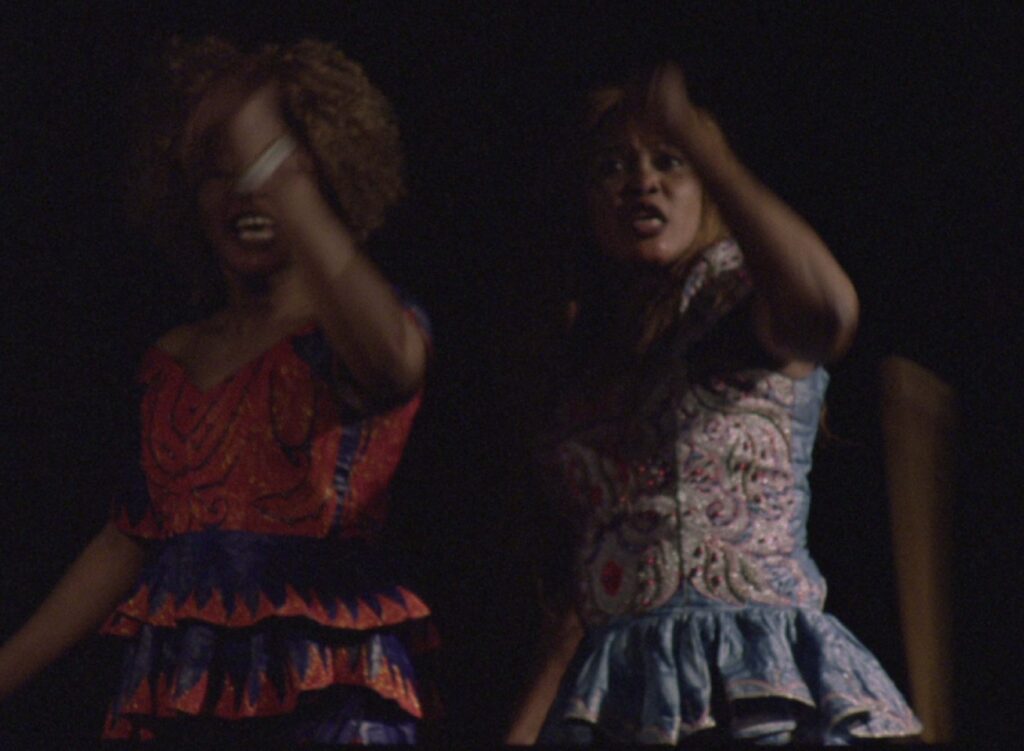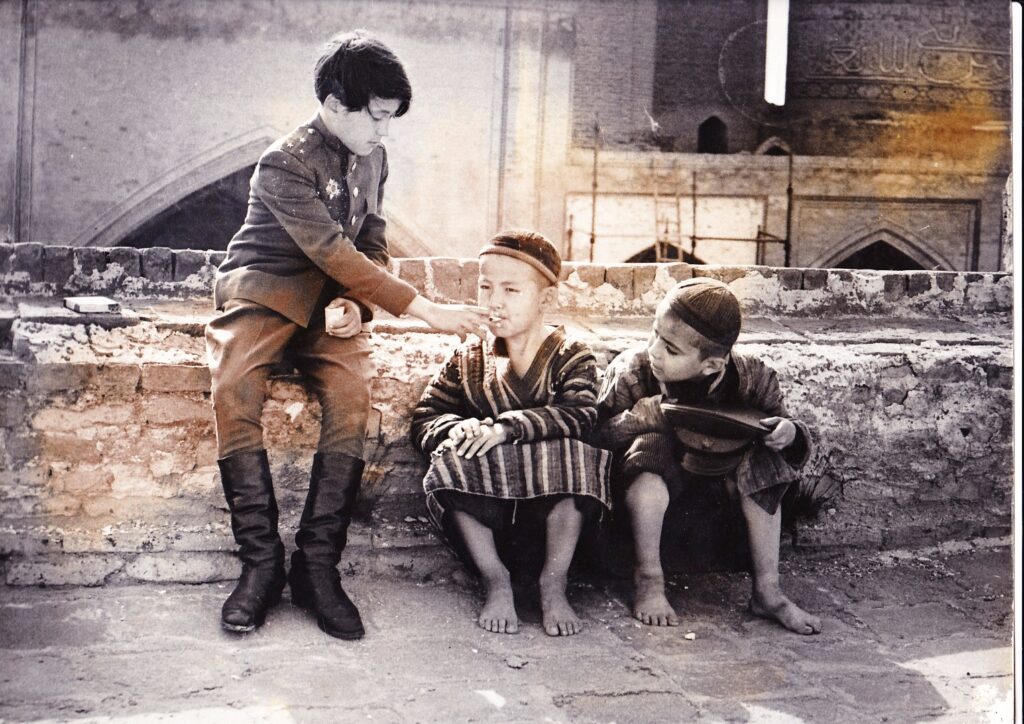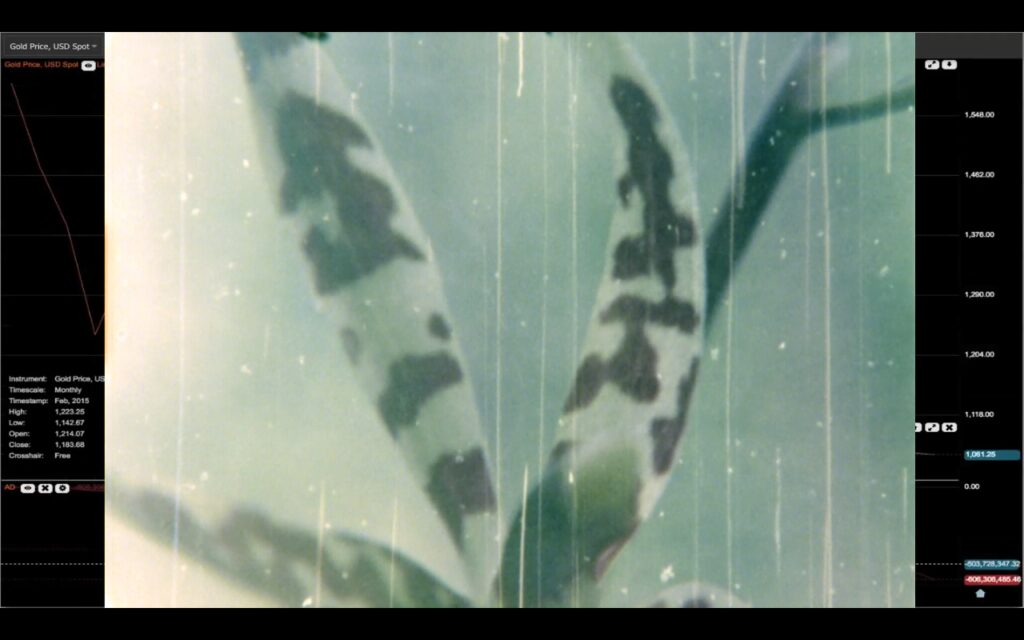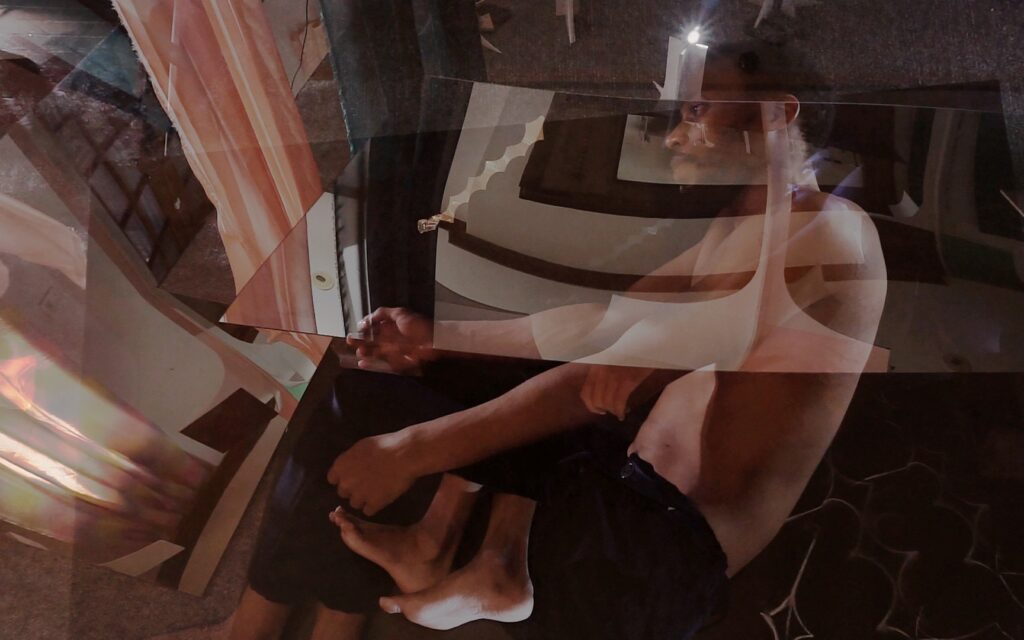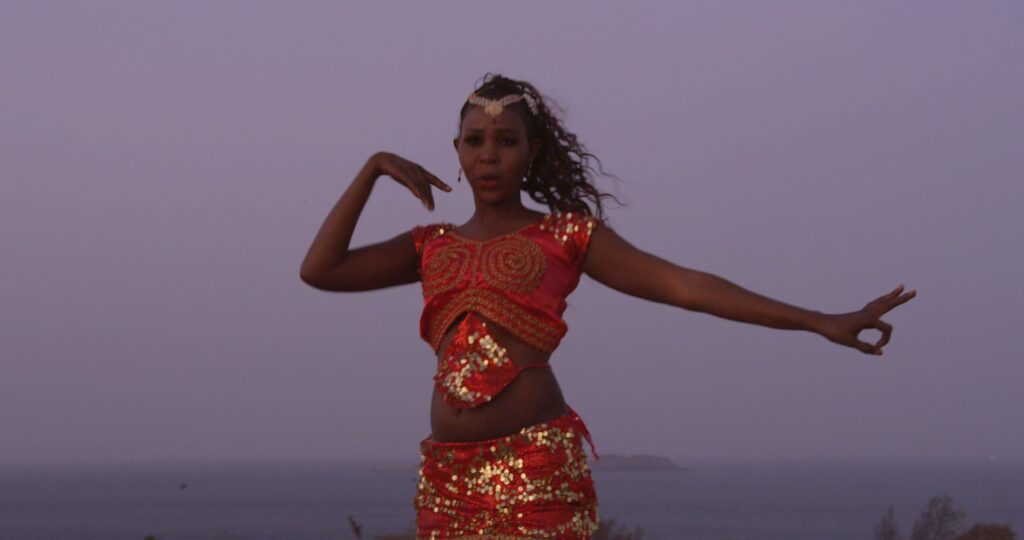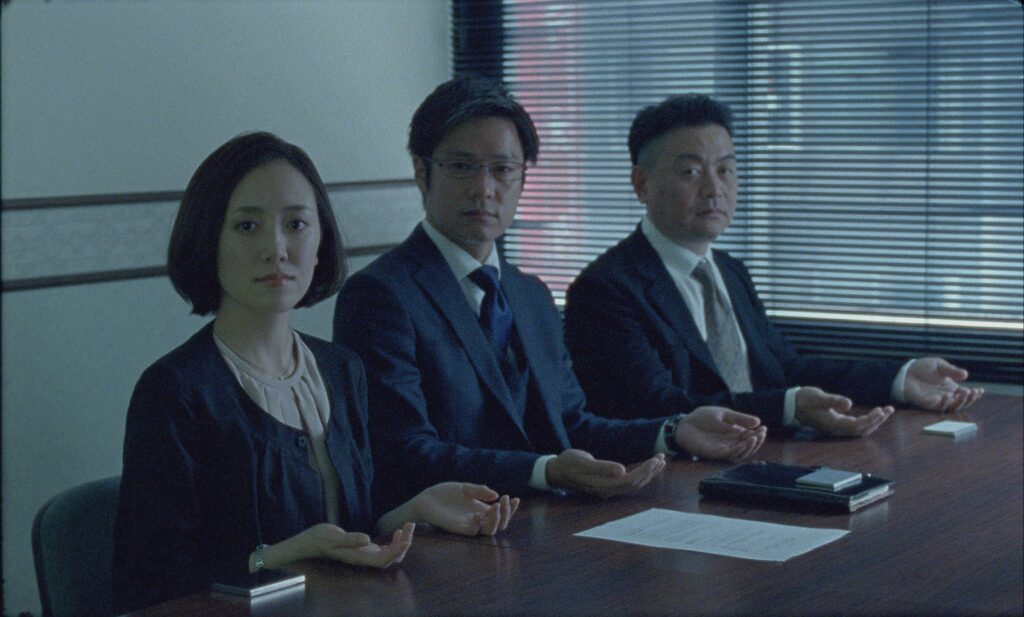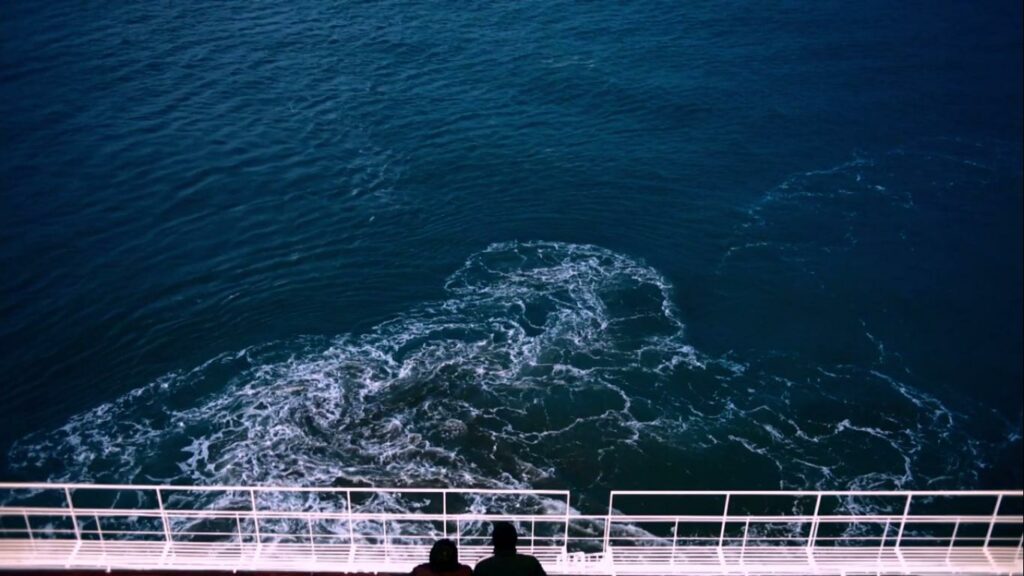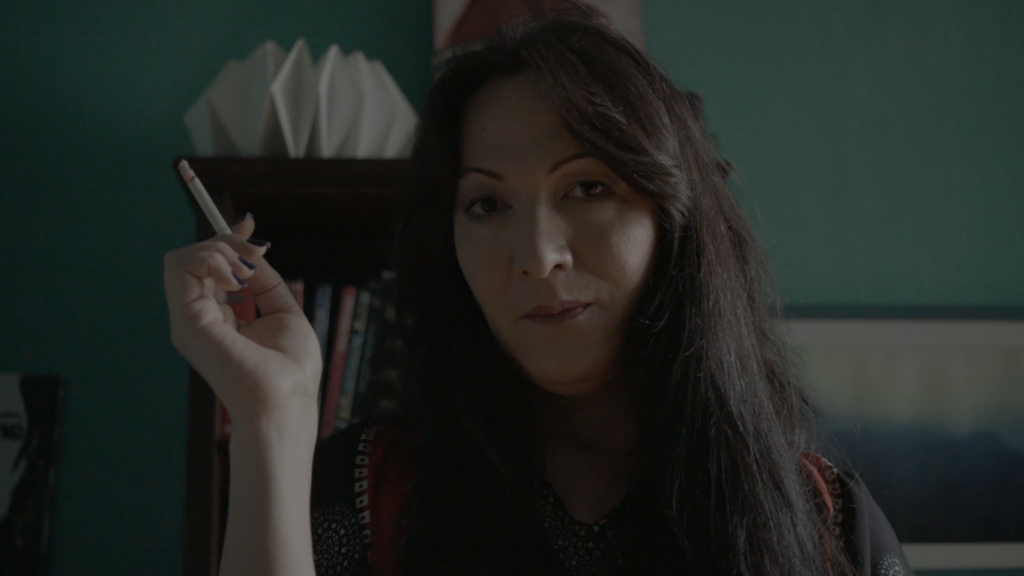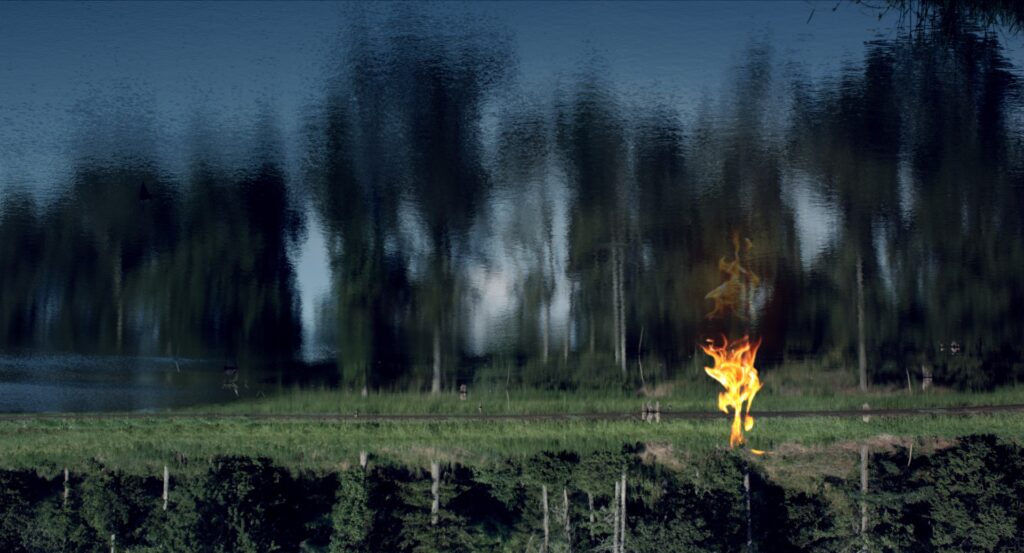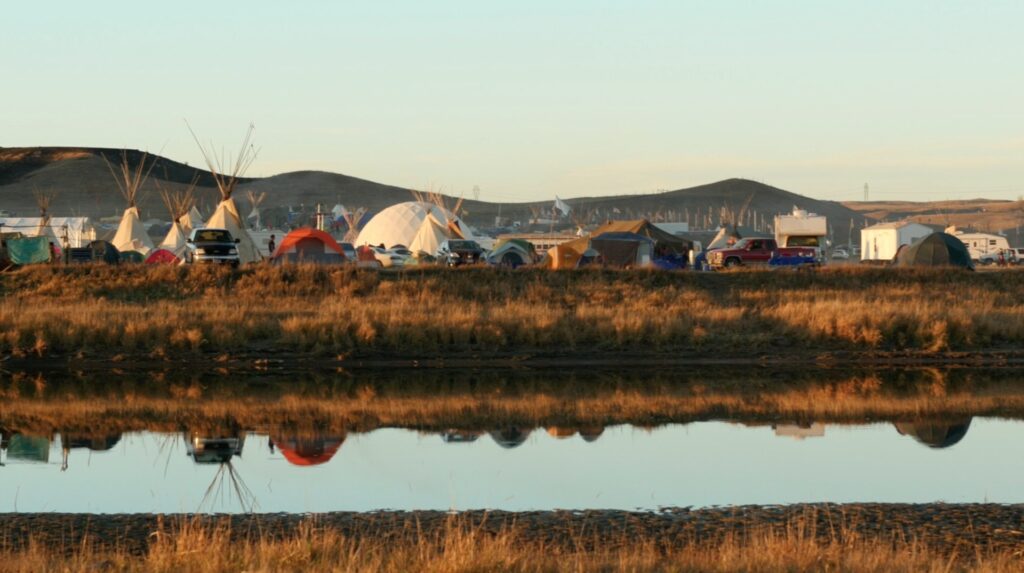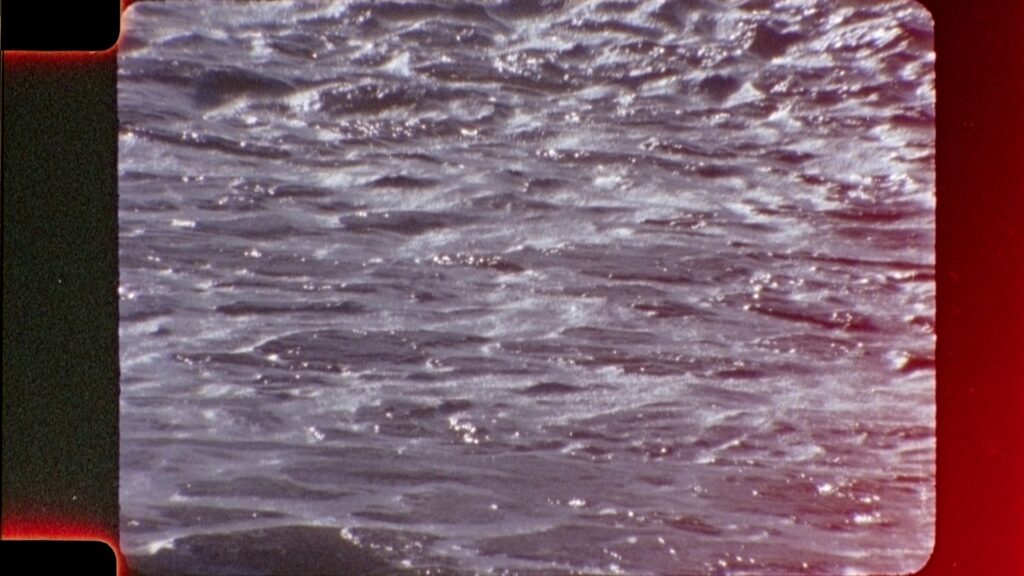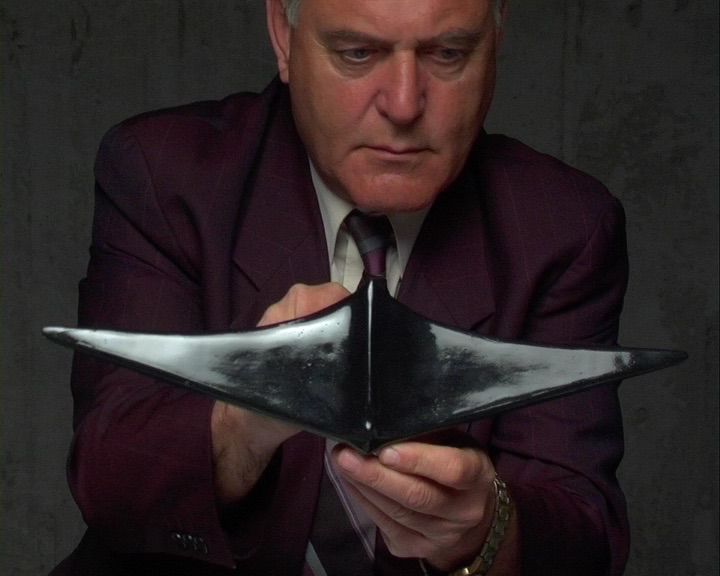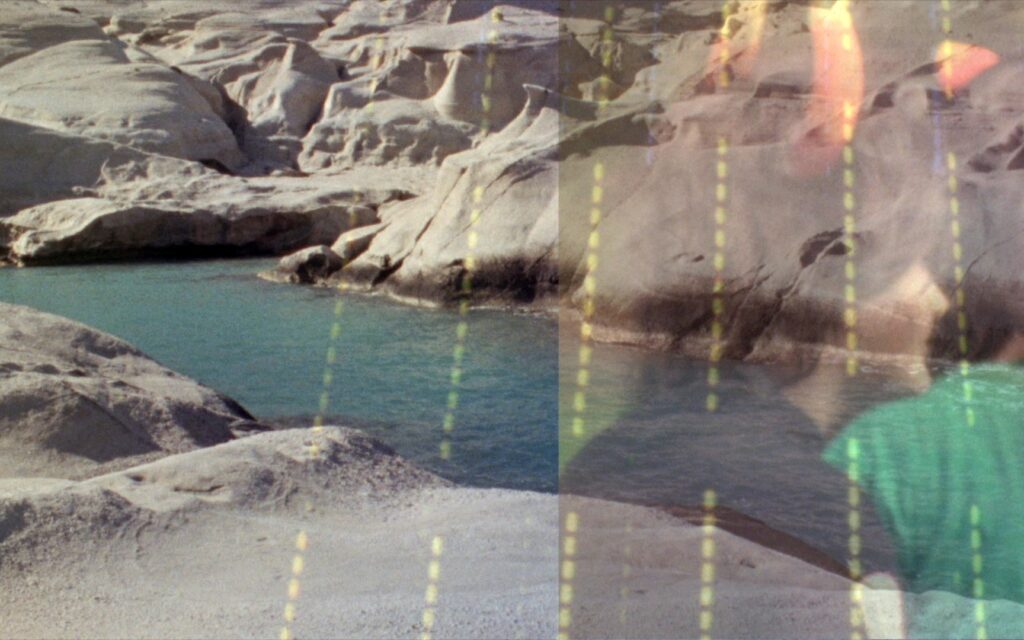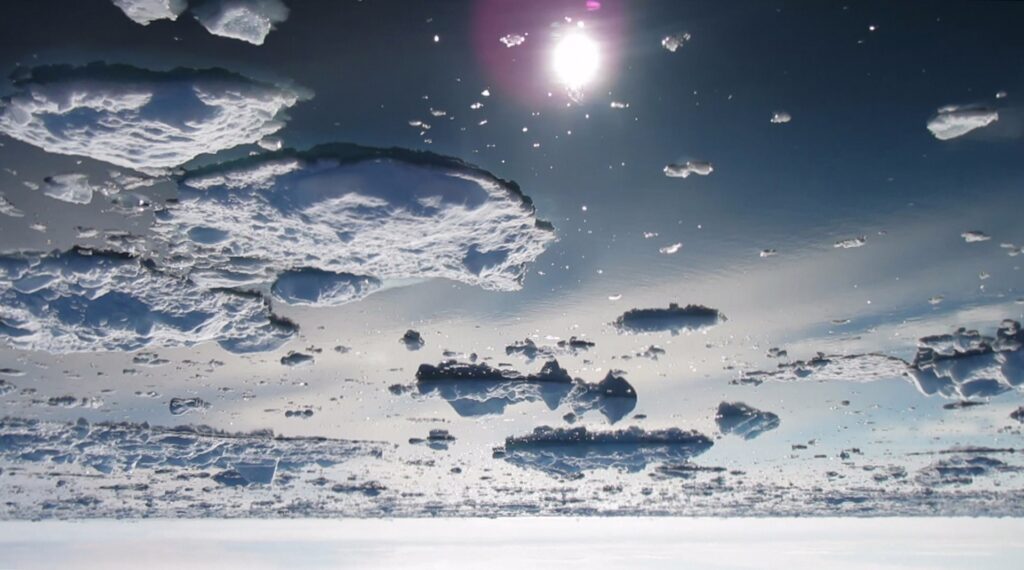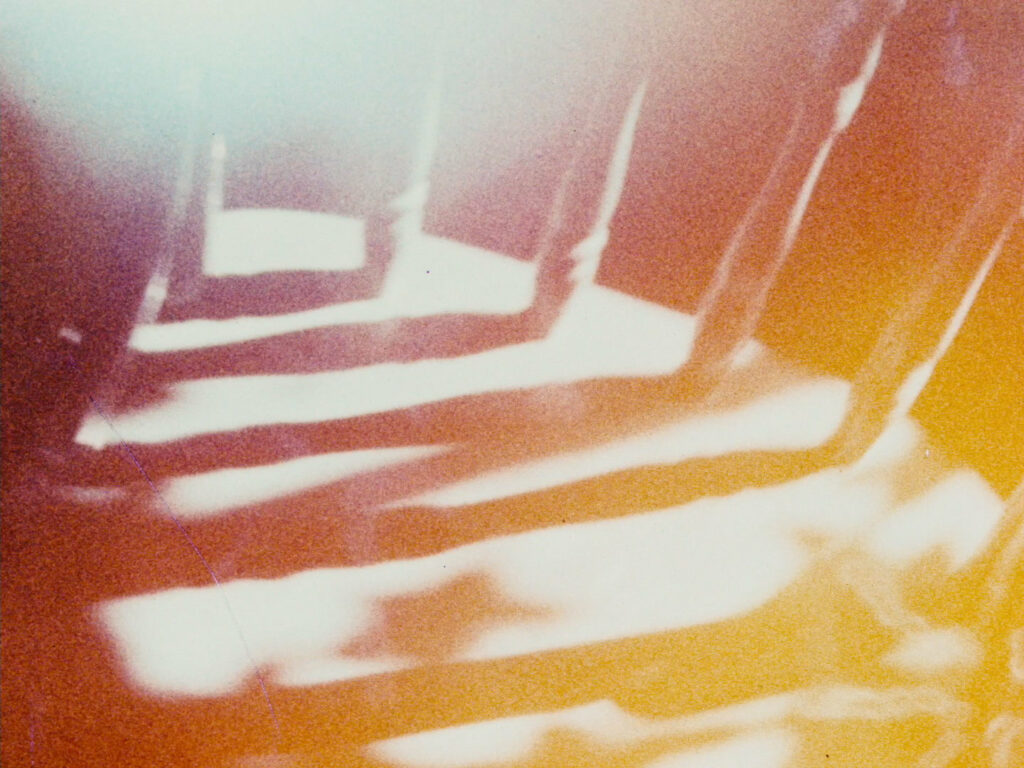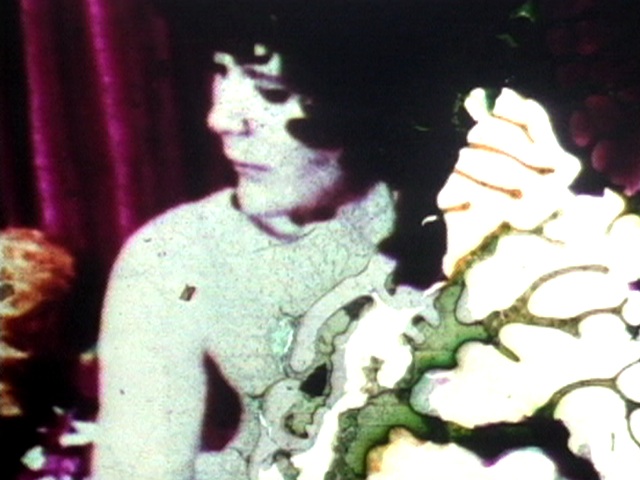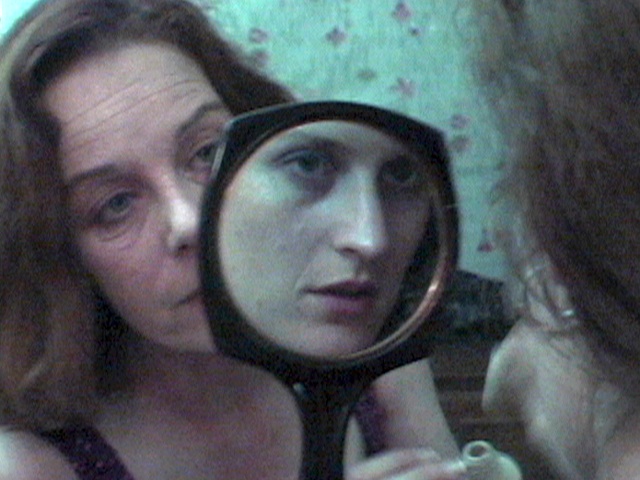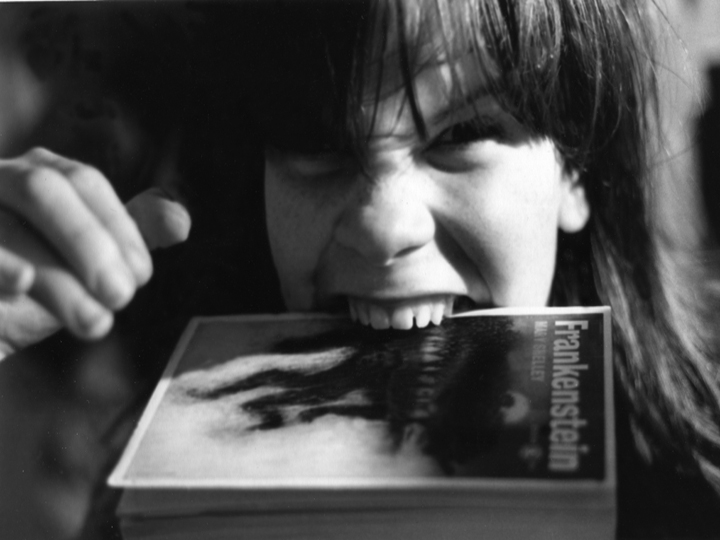
Luke Fowler
Scottish artist, filmmaker and musician Luke Fowler (1978) has developed a practice that is at the same time singular and collaborative, poetic and political, structural and documentary, archival and deeply human. With an emphasis on communities of people, outward thinkers and the history of the left, his 16mm films tell the stories of alternative movements in Britain, from psychiatry to photography to music to education. Whilst some of his early films dealt with music and musicians as subjects, in later works sound itself becomes a key concern. (Maria Palacios Cruz)
Join Berwick Visual Arts Artist in Residence Lucy Clout to celebrate the opening of her BFMAF 2018 exhibition, Solvent Magazine. Refreshments and merriment aplenty.
Run Time
Years When I Was a Child Outside is a meta-film following Torres’ perspective as the son of best- selling self-help author Rodolfo Torres, whose instructional books and tapes made in early 1980s Philippines aimed to ‘help raise brighter children’. Upon learning that his father bore illegitimate children, the narrator decides to run away. The film is not only a chronicle of stories through foreign regions but also a probing letter from outside circles; an honest account of illegitimate views from uneven terrain; and a narrative-driven exploration of the nooks and peripheries of the body, geography and weather. As the journey progresses, the film increasingly traverses the countries of revelation, film, and heart—to where all journeys are meant to end with.
Q&A with filmmaker John Torres
Run Time
Join Katie and Chloë at the Kaleidoscope shop (59 Marygate) at 15:30 to watch Song of the Sea, an enchanting Irish animation that tells the story of Ben and his little sister Saoirse. Suitable for childrenages 5+ and popcorn provided.Places are free but should be booked via The Maltings.
Run Time
Shine bright. Portraits of a nomadic musician and an animatedly-perverse single father butt up against a simulacrum of the Middle East and a tactile inquiry into the natural world. Taken together, expressions of personal, political, spiritual, mystical and sexual agency provide powerful statements of either resistance to or complicity in an increasingly commodified world.
Run Time
Sensory, colourful and widescreen, the forest is already naturally cinematic.
Since the turn of this century, the forest has fascinated a new generation of global art filmmakers who have chosen the forest as a space for their creative exploration. ‘Screening the Forest’ takes nature as its point of departure by weaving together cinematic forests from India, Japan, Singapore, South Korea, Taiwan, Thailand, Vietnam and the Philippines. In some cases, the forest may even refer to nothing but a world construed as its own territory.
Like the real forest, where many genuses of trees coexist, the programme emphasizes that cinema is constructed not only culturally and aesthetically, but also ecologically or even animistically. As new strategies and interpretations of the forest emerge from a variety of Asian filmmakers, new trees can be sowed within our own imagination.
Q&A with curator Dr. Graiwoot Chulphongsathorn
Run Time
Kaleidoscope is a bean-bag cinema and family friendly art space. There is a rolling programme of animated films from Cinekid Festival Amsterdam. Hands-on making activities will be led by artists Katie Chappell and Chloë Smith.
Between the dizzying hallucinatory landscapes and circular images of a lens or porthole, Hopinka takes us to a world of dreams, spirits and myths, revealing the story of Xąwįska, the Indian Pipe Plant used by the Ho-Chunk to revive those who have fainted. With abstracted and inverted images Hopinka moves from an editing station into the landscape, illuminating the sense of losing oneself, of fear and renewal. —Ruth Hodgins
An existential thriller with touches of magic realism, Jîn follows 17-year-old Jîn, a Red Riding Hood with a fierce survival instinct. She is a freedom fighter who flees her armed organisation for reasons unknown. Jîn finds herself battling bravely through dark forests, spending solitary days in the mountains, and ultimately heading towards a city where her future is still unclear. Symbolising the complex and heated conflict between military forces and Kurdish guerrillas, the film contemplates the effect this military conflict has on the forest and mountains, including their inhabitants: animals, trees and the ecosystem enfolding them all, which doesn’t have the ability to fight back.
Introduced by Dr Graiwoot Chulphongsathorn
This special screening of Jîn is kindly supported by Berwick Film Society
Run Time
How Does an Invisible Boy Disappear? emerges from a nine-month collaboration with Liverpool Black Women Filmmakers, a new women’s film collective made up of young women from a Somali & Pakistani background. The film documents the group as they work together to create a thriller focusing on a teenage girl’s attempt to find a missing local boy. Comprised of candid footage captured during the workshop process, behind the scenes filming and archive footage of anti-racist organising in the aftermath of the Toxteth race riots, the film questions how modes of representation and societal structures are gendered and racialised.
Commissioned by Liverpool Biennial and supported by Tenderpixel, London
of Violence uses the structure of close-up pillow talk and casual camerawork to engage a dog in intimate digressions. The dog becomes an involuntary participant in human impositions—emotional, physical, linguistic and political.
Co-commissioned by Film London and Channel 4 for Random Acts
An analogue foray into a digital world.
Working with Newcastle-based moving image collective Film Bee, 15 young people from Berwick Youth Project have used collective reflection and DIY problem solving to create a series of provocations and installations about reality in a digitalised world, and how the value of images has changed with shifts in technology, particularly social media.
Berwick Youth Project provides youth clubs and bespoke activities to engage and support young people aged 13 to 18. The hub of all this activity is located at The Beehive, a purpose built youth facility. The moving image art work was made during a series of evening and summer holiday participatory sessions in collaboration with artists Mat, Christo and Leah from Film Bee.
The young people also took a trip to Tate Modern in London during the summer holidays to meet the ARTIST ROOMS team, see work by artists Jenny Holzer, Joan Jonas and Pablo Picasso, helping to inform the work they have produced.
In their own words:
‘It’s really boring to be a teenager in Berwick and this project gave us the opportunity to try something totally different and learn about art in a new and interesting way. Working with the artists was really cool and we hope lots of people young and older will come and see our installation.’
The Hurt Goes On was produced and created as part of ARTIST ROOMS Learning Programme and inspired by the work of artist Douglas Gordon, presented by Berwick Visual Arts at the Gymnasium Gallery in summer 2018
The ARTIST ROOMS programme is delivered by the National Galleries of Scotland and Tate in partnership with Ferens Art Gallery until 2019, supported using public funding by the National Lottery through Arts Council England, by Art Fund and by the National Lottery through Creative Scotland
Lucy Clout presents a new body of work titled Solvent Magazine, including sculptural and video pieces made during her six-month residency with Berwick Visual Arts and BFMAF. An assemblage of parts that brings together research around close readings of bodies— diagnostic narratives, pleasure and ambiguity are used as ways to think about knowledge, evidence and queer reproduction.
Part-waiting room, part-publishing house, Solvent Magazine presents: a £23.00 USB microscope camera, the story of a temp’s discretion, a new design for privacy screen glass which mimics the saliva of a person with secure attachment style, two piss coloured Perspex doors and a layer of plastic to keep out distractions.
Agnieszka Polska’s unsettling perspective on humanity takes the form of an animated child-faced sun with melancholy eyes. Digitally sourced images paint a frantic image of a crumbling world. From a distance, the sun jokes about environmental issues and comments on the tumultuous times in which the world finds itself.
The film borrows its title from a poem by Polish poet of the realist/positivist style Maria Konopnicka (1842–1910). The poem ‘What the sun has seen’ recounts in a childish style the quotidian, peaceful rural activities and happy family life of the nation in the countryside, as observed by the sun on its daily journey across the sky. Polska offers her own dark, ironic version of the poem, dealing with contamination by information (information waste) and the role of the ‘helpless observer’ who, like the ‘Angel of History’ in the well-known adage by Walter Benjamin, can only look at the debris piled by lived time without being able to intervene.
Shot in Colombia, The Magical State depicts the possession of a Wayuu woman by a 40 million year old oil demon. Framed as an interrogation, an off-screen male voice challenges the woman, who gazes back directly into the viewer’s eyes, placing a curse on ‘man’, the species who have woken it from geological time. The violence of natural resource extraction—and the resulting violation of land rights—are reflected in the demon’s iridescent-coloured rage and stroboscopic movements.
Secondary School Screening and Curator’s Talk Thursday 20 September 2018, 10:00 (Years 10 +)
Secondary Schools are invited to bring students to watch a dedicated screening of Jîn, introduced by Dr. Graiwoot Chulphongsathorn. An existential thriller with touches of magic realism, the film follows 17-year-old Jîn, a Red Riding Hood with a fierce survival instinct.
To bring your group, please contact val@bfmaf.org. Optional visit to installation trail.
Run Time
Bathing explores themes of contamination, cleanliness, and debility through performance and dance. It is an adaptation of a performance Staff developed that features a solo performer moving in and out of a shallow basin of water. Between the performer’s movements, the video intersperses images of oil, spit, fluid landscapes, and U.S. border patrol, with flashes of a dog lost to a blissful state of chaos.
The work draws on Staff’s research into the classical figure of the bather, chemical effects, drunken revelry, and the spiritello figures that commonly adorn European fountains. The performer’s continuous actions and gestures eventually lead to overexertion of the body. A fluid cross-contamination between substance, performer, and image occurs, bringing to mind the ways in which bodies absorb and release chemicals, hormones, and other agents—a means of survival for some and potentially lethal for others.
The video embraces feelings of anxiety induced by stagnant water and its pollution, while expressing ambivalence about the supposed opposition between inebriation and good health, suggesting that states of intoxication may be compared to a queer mode of being. However, while offering the toxic as a possible source of liberation from conservative notions of well-being and capacity, Bathing also asks us to consider the inherent privilege in celebrating states of disorder and from whom those privileges are commonly withheld.
A conversation between a therapist and their client unfolds as a yellow ball swings back and forth. Replicating simple animations of online EMDR videos used to treat Post-Traumatic Stress Disorder, Consensual Healing feeds Octavia Butler’s short story ‘Bloodchild’ through scripted therapeutic protocols, destabilising relations between coercion and consent, form and content, trauma and fiction.
Music by Juliana Huxtable; sound by Marco Gomez
Run Time
Run Time
Run Time
Bodies as markers and makers of change. Desirable and desiring, abject, vulnerable, undignified, flawed and fragile, caught between the mundane and the mythological, the domestic and the supernatural. What shines through are the social, political and emotional ramifications of corporeal transgression.
Run Time
Run Time
Run Time
Now in its 10th year, the Young Filmmakers’ Competition is BFMAF’s annual award to help support and encourage budding young filmmakers. Featuring a variety of genres, from animation to documentary to narrative film, the competition showcases some of the best young talent from the region.
The competition is supported by Chrissie Anderson and Paul W.S. Anderson (director of Resident Evil and Alien vs. Predator), in commemoration of the life of Chris Anderson, a resident of Berwick who was an active supporter young filmmakers and of the Festival.
Run Time
Run Time
Join Charlotte Prodger and Laura Guy for an informal discussion.
Run Time
Run Time
Run Time
Run Time
A speedway film night, including the world premiere screening of Mm, a BFMAF and Northern Film & Media commission commission by Margaret Salmon. Shot with the Berwick Bandits, Berwick-upon-Tweed’s own speedway heroes, Mm commemorates their 50th season and offers an imaginative take on the thrilling wold of this popular motorcycle sport.
Run Time
Run Time
Run Time
Run Time
Accompanying the Festival’s exhibitions programme, the Berwick New Cinema Competition features resolutely contemporary films that transgress restraints of genre, capital and expectation. Doubling in size since its first iteration in 2016, it is one of the Festival’s ambitions to develop dialogue around different presentation potentials for the moving image.
A drive towards liveness and agency provides a critical framework for selections.
This year’s jury are 2016 Berwick New Cinema Award winner Camilo Restrepo, artist and curator Amal Khalaf (Serpentine Gallery and GCC Collective) and film programmer Joanna Raczynska (National Gallery of Art, Washington).
Run Time
Run Time
Join Peggy Ahwesh and Laura Guy for an informal discussion


